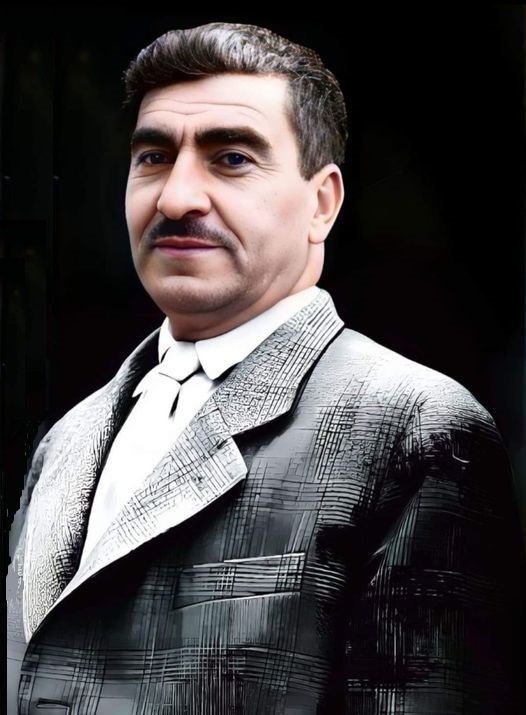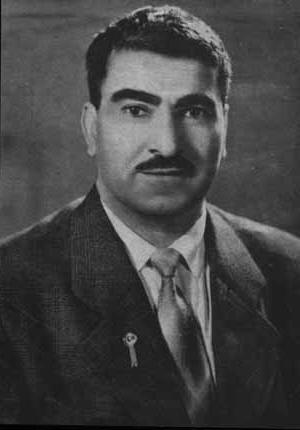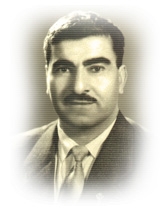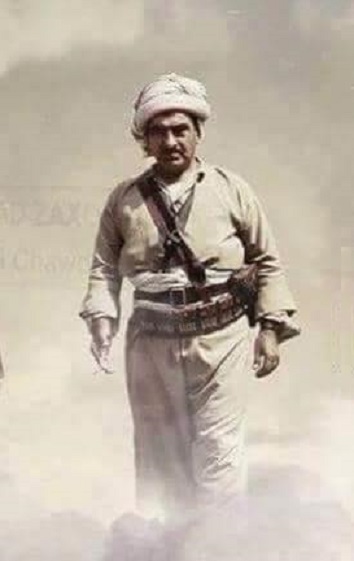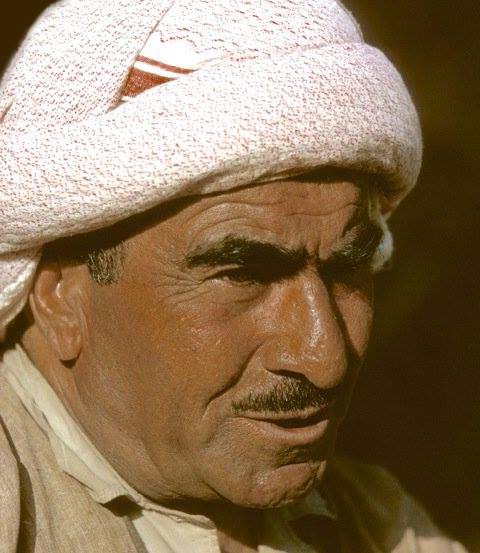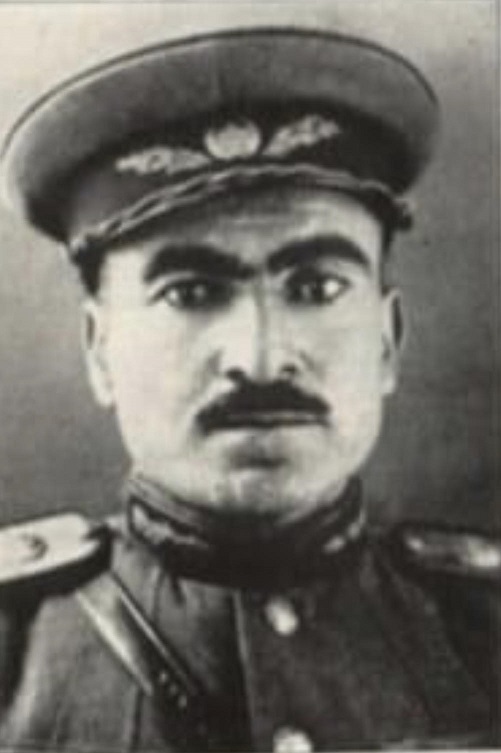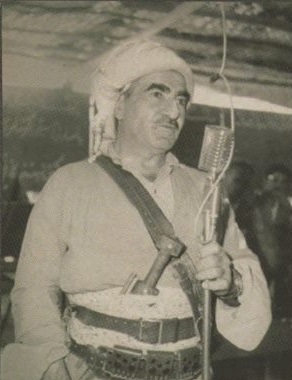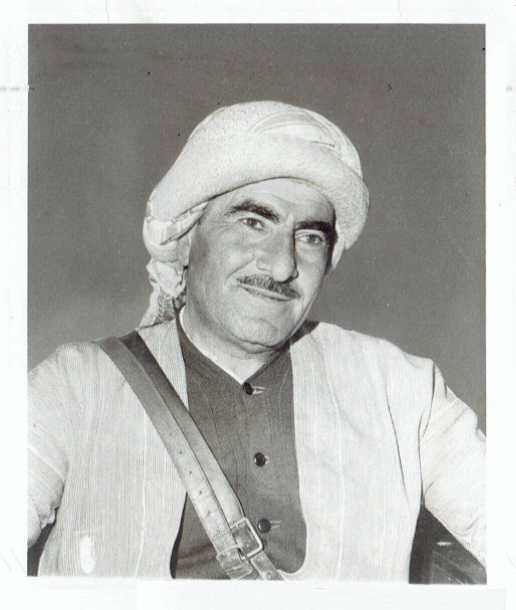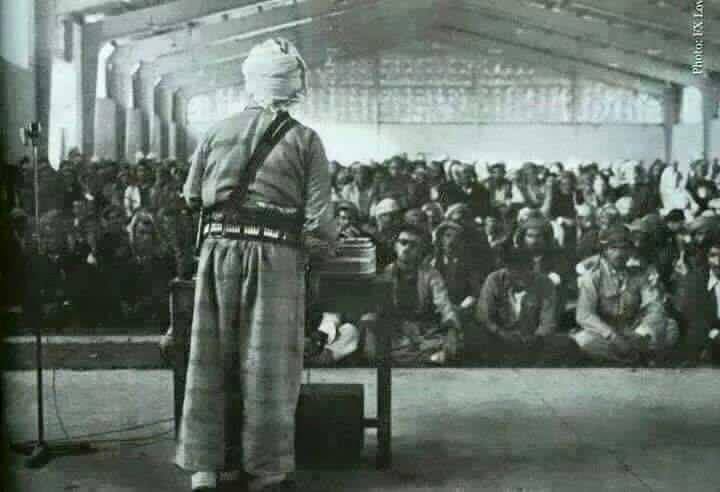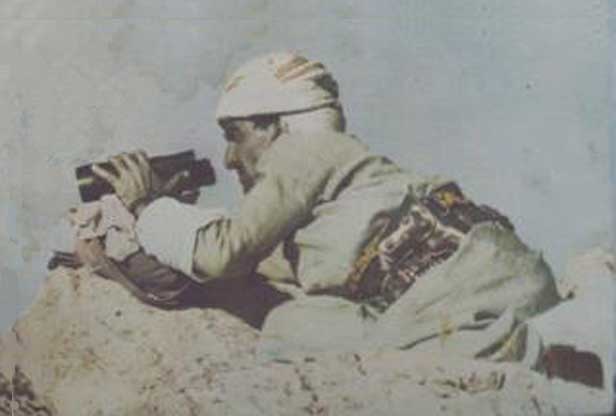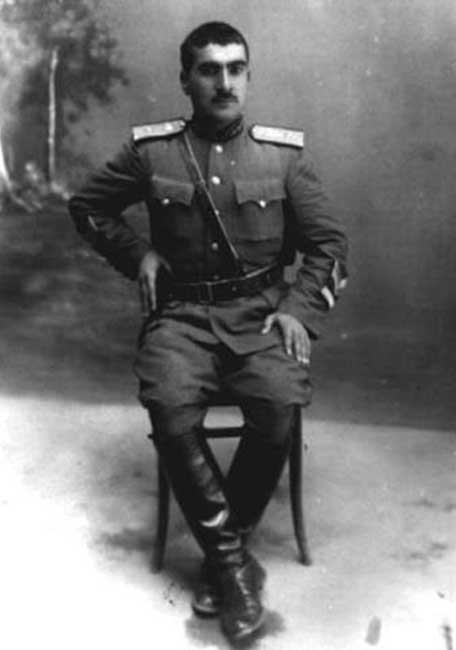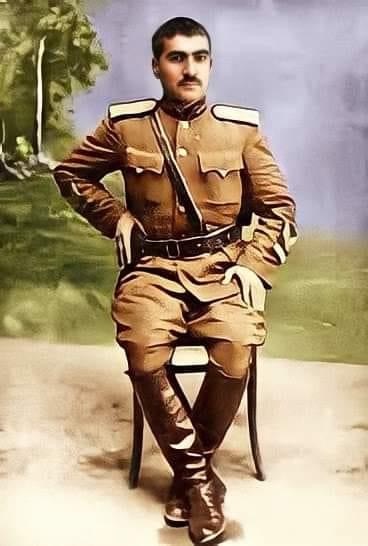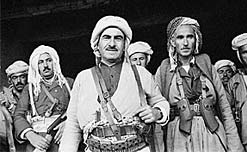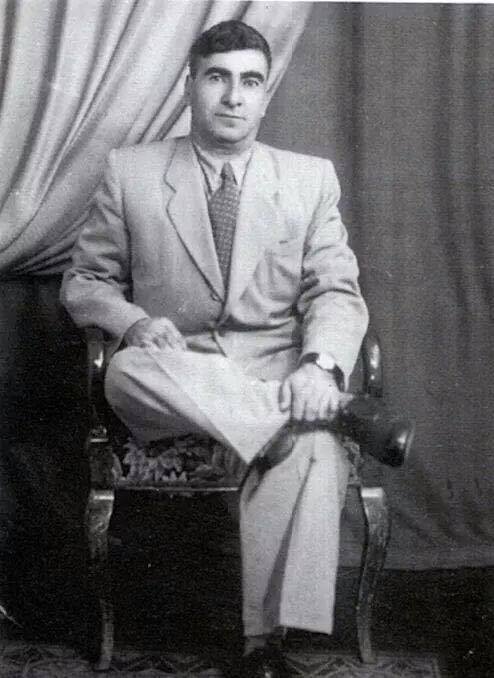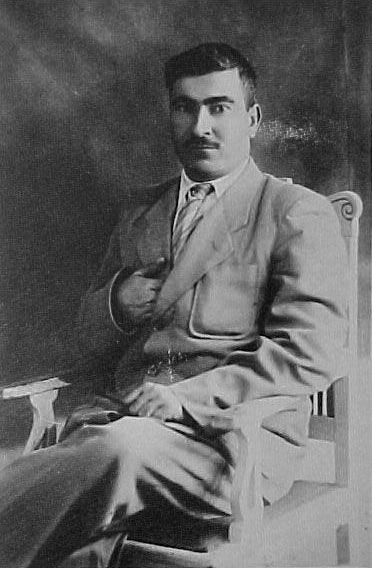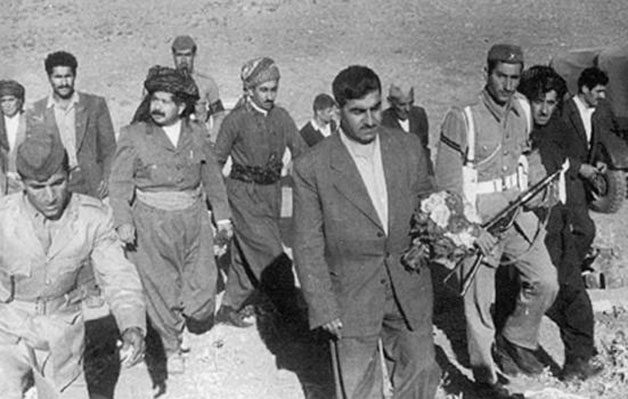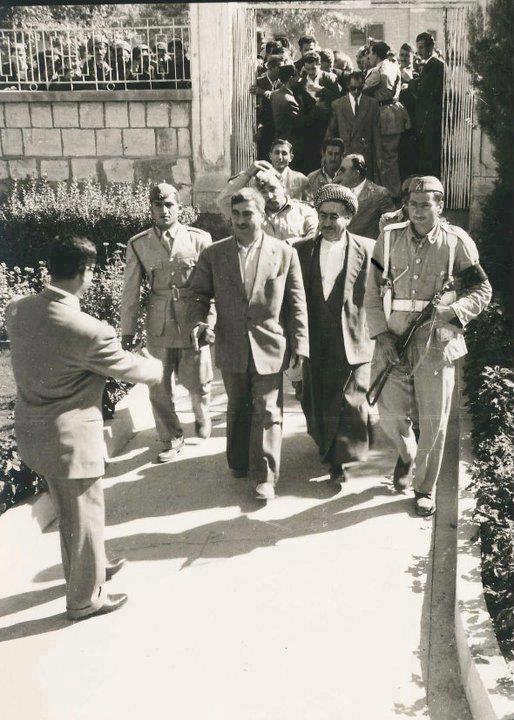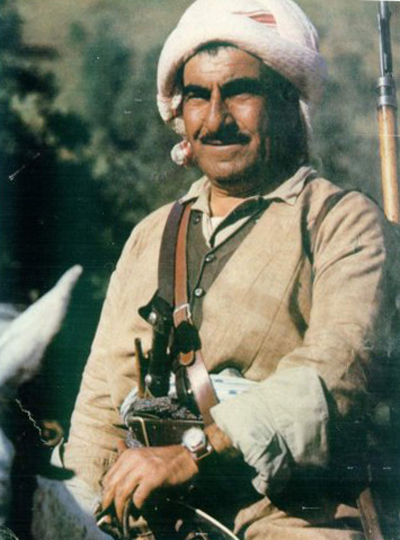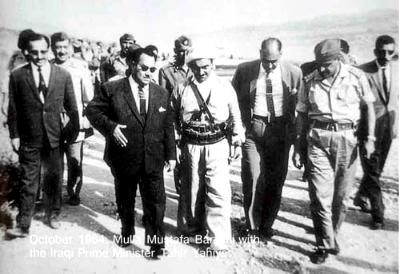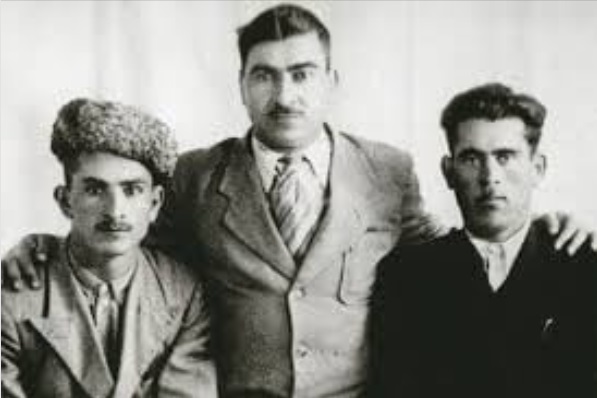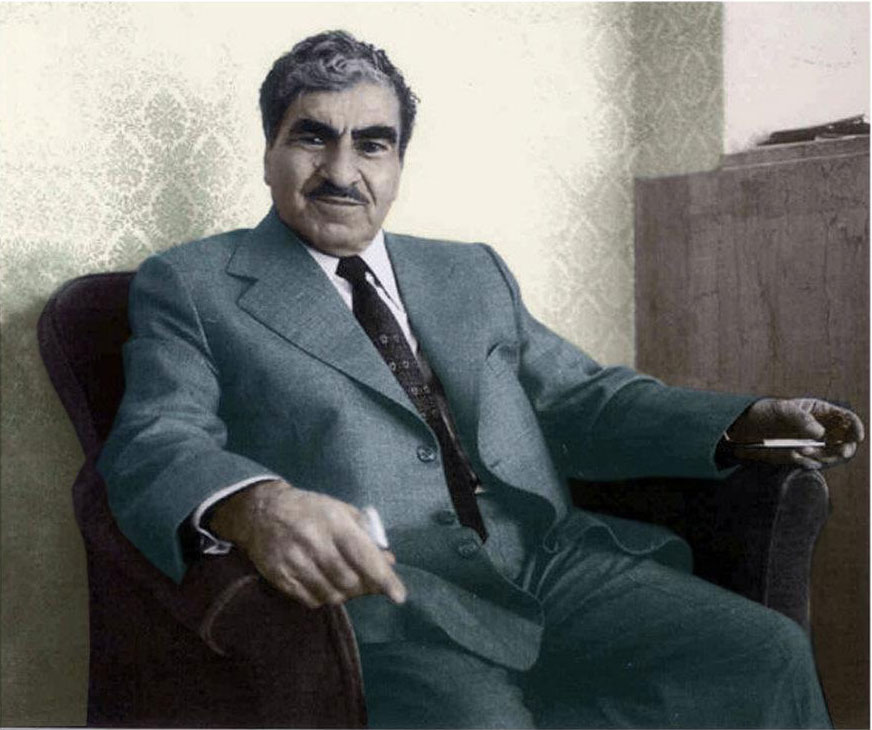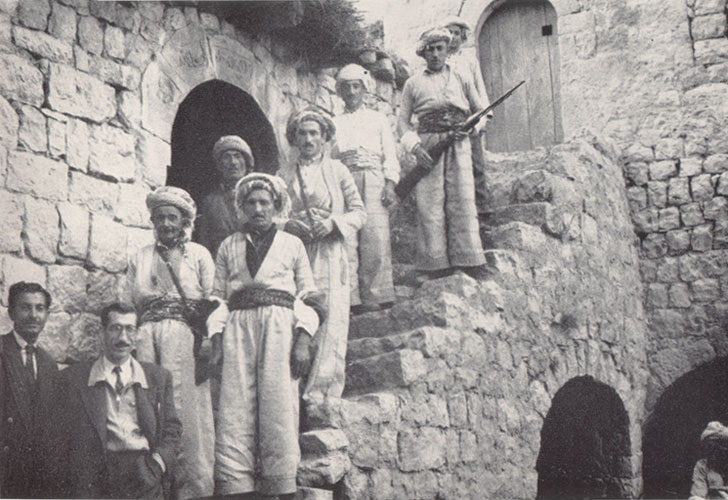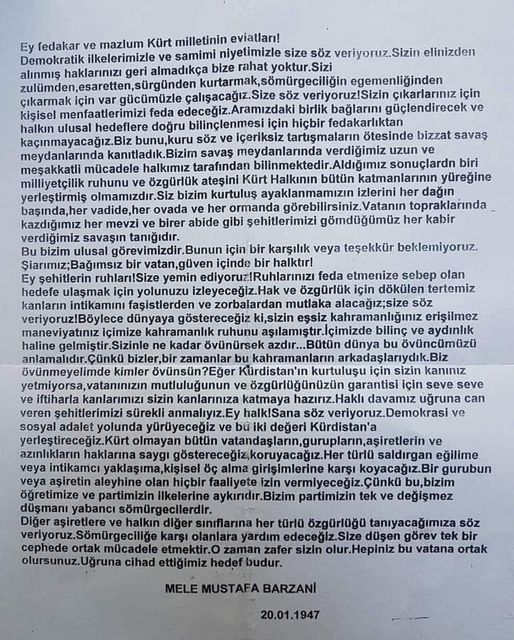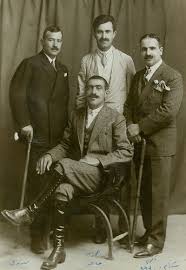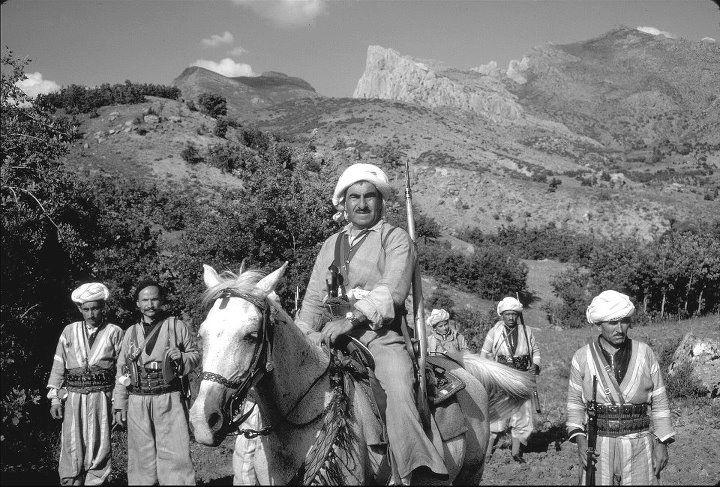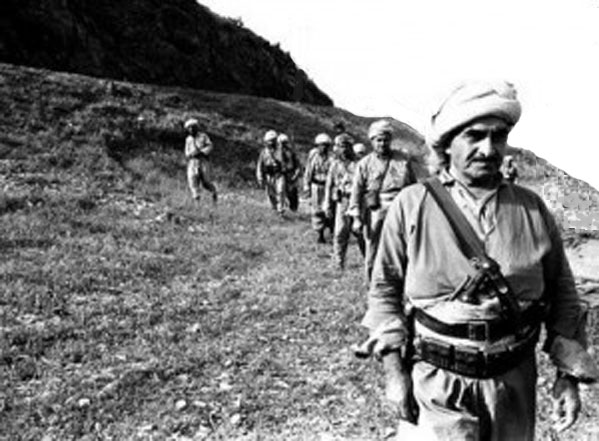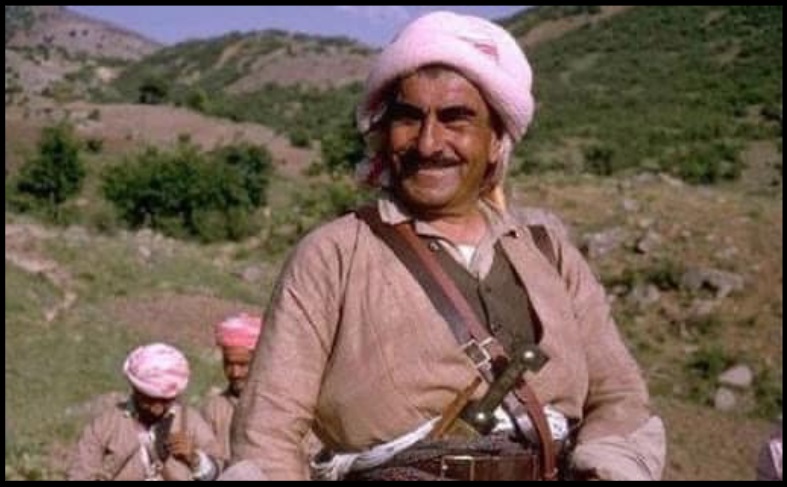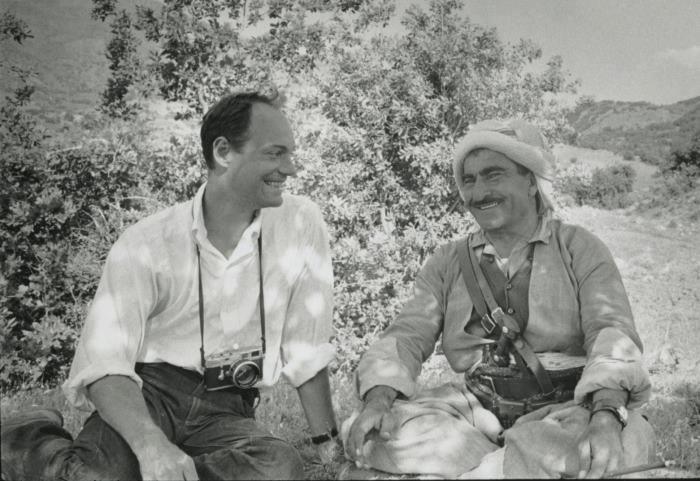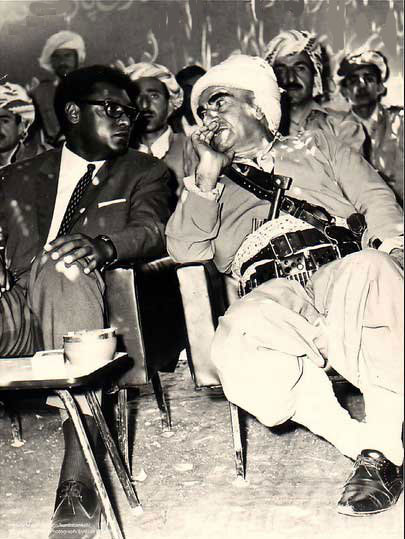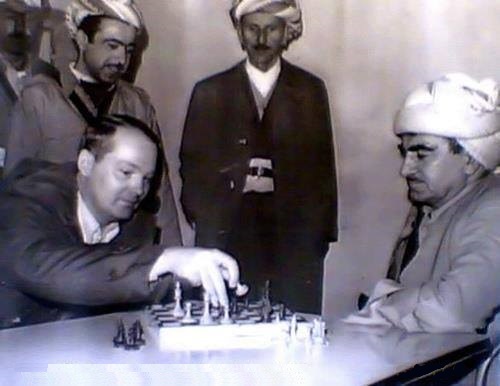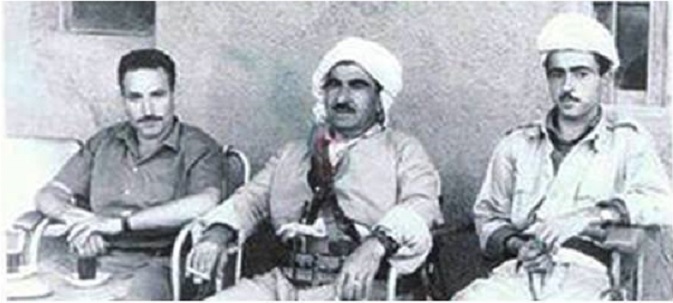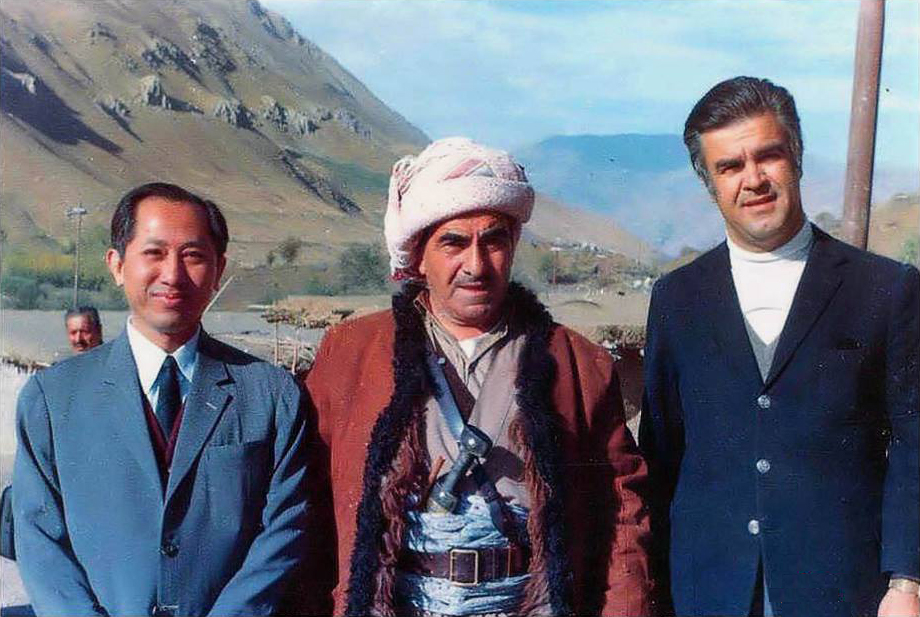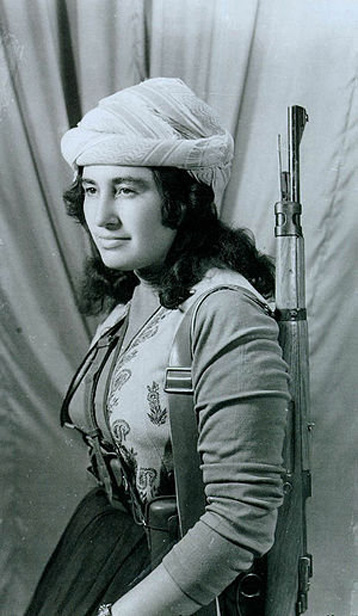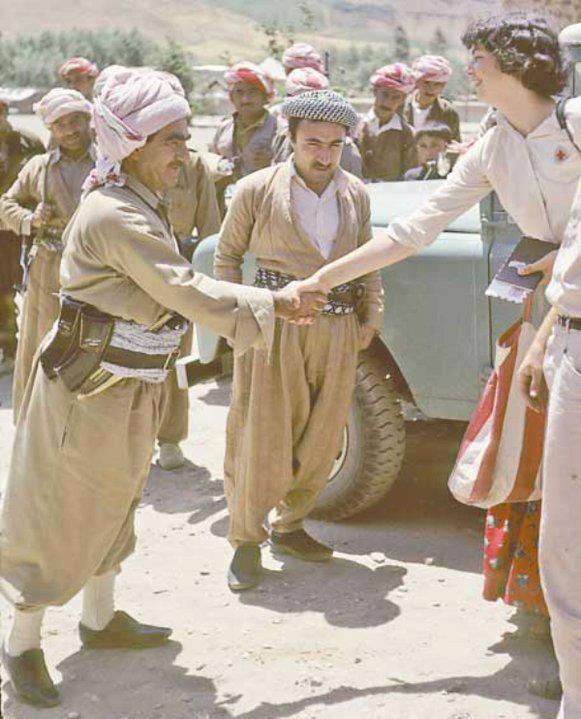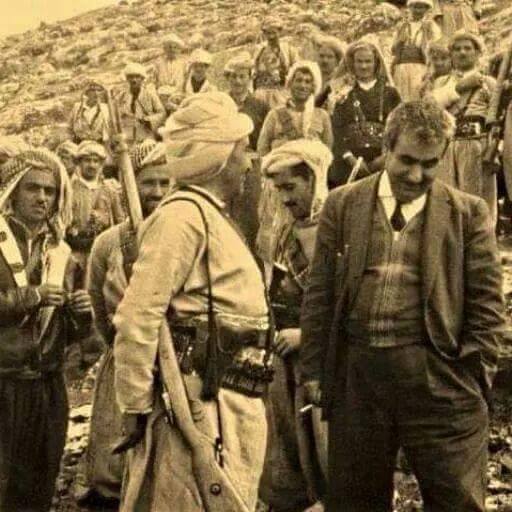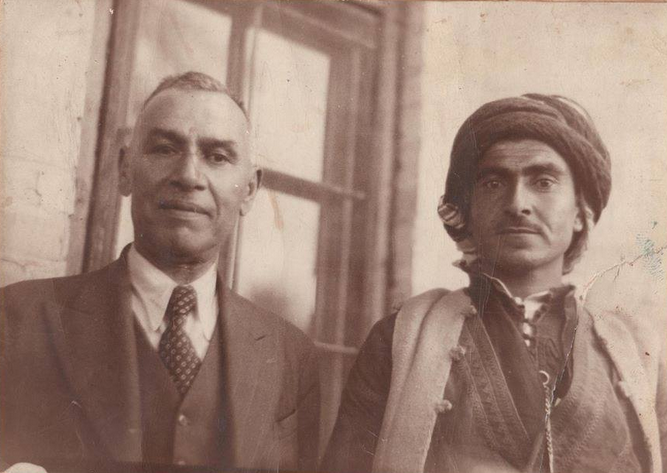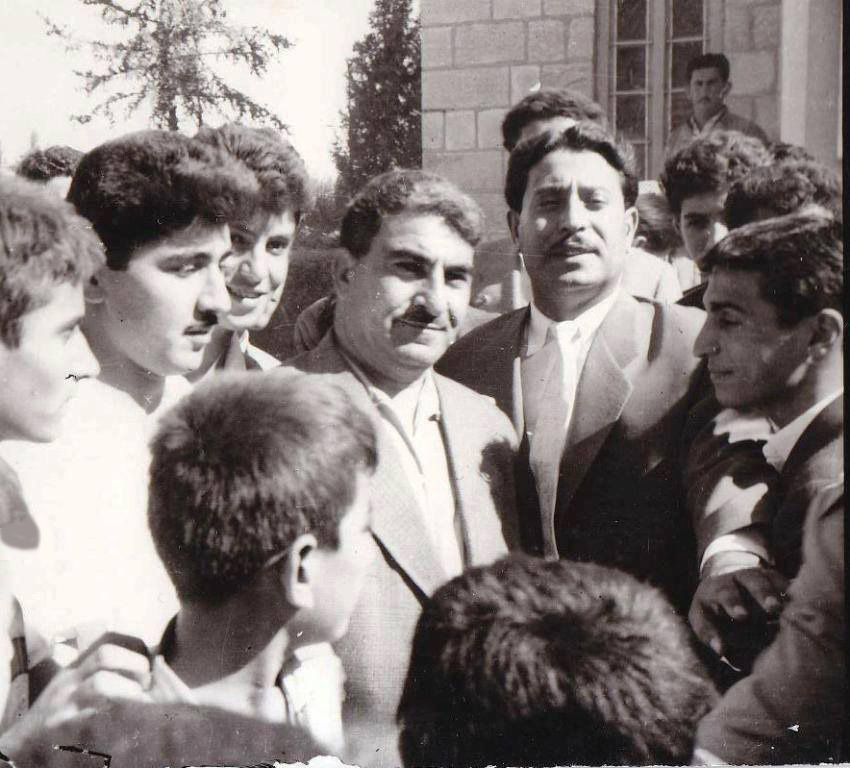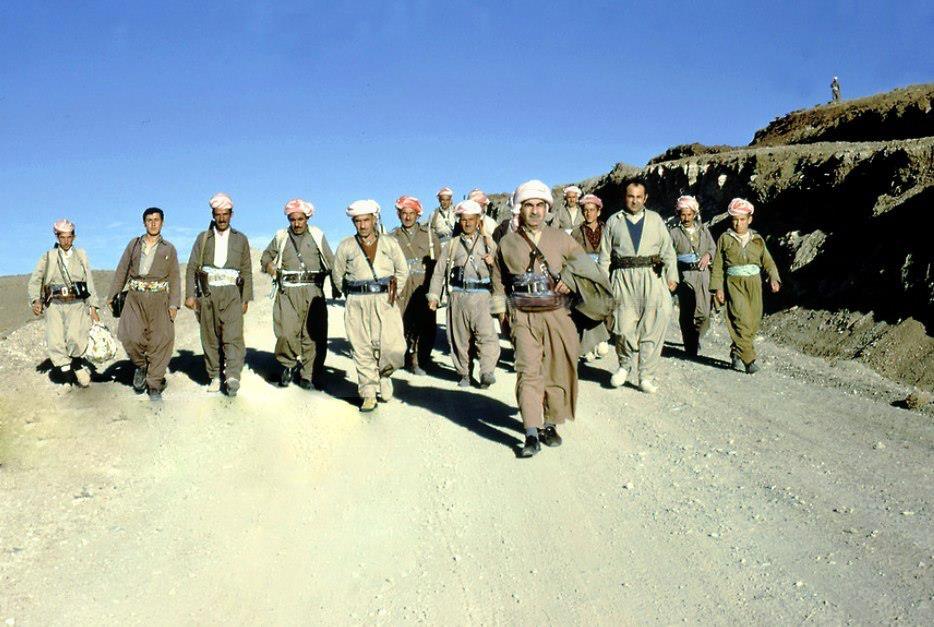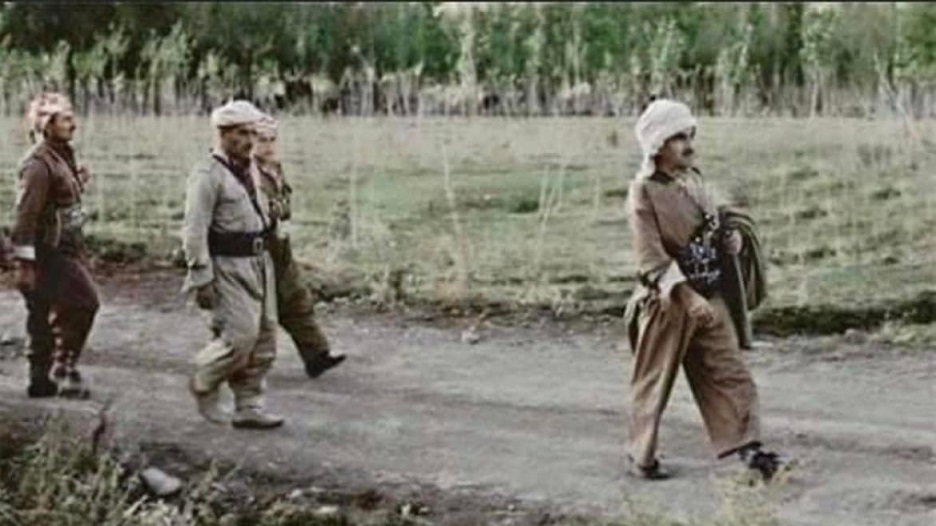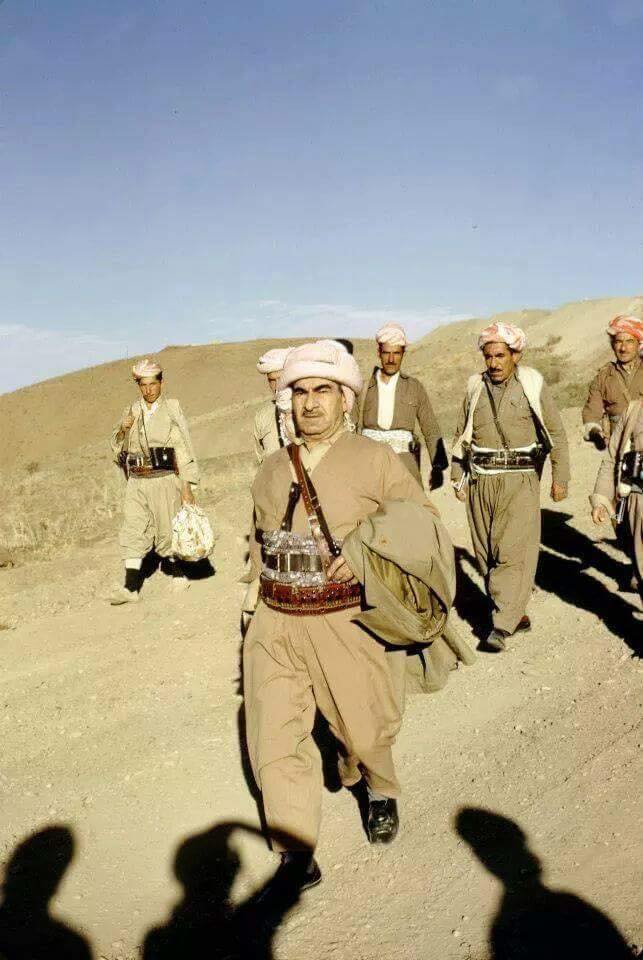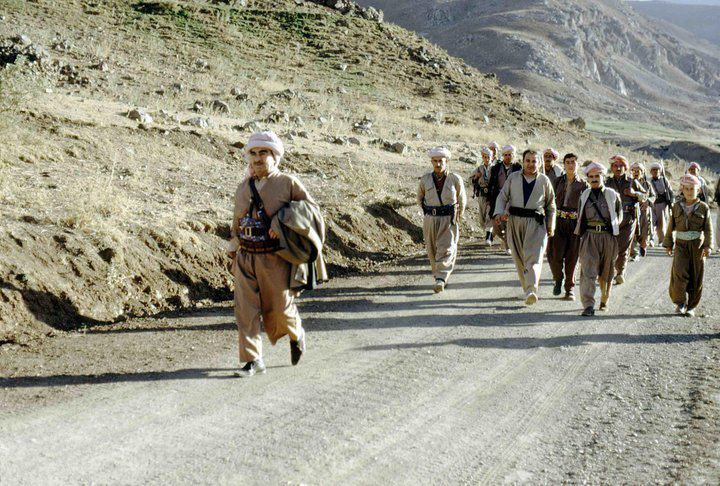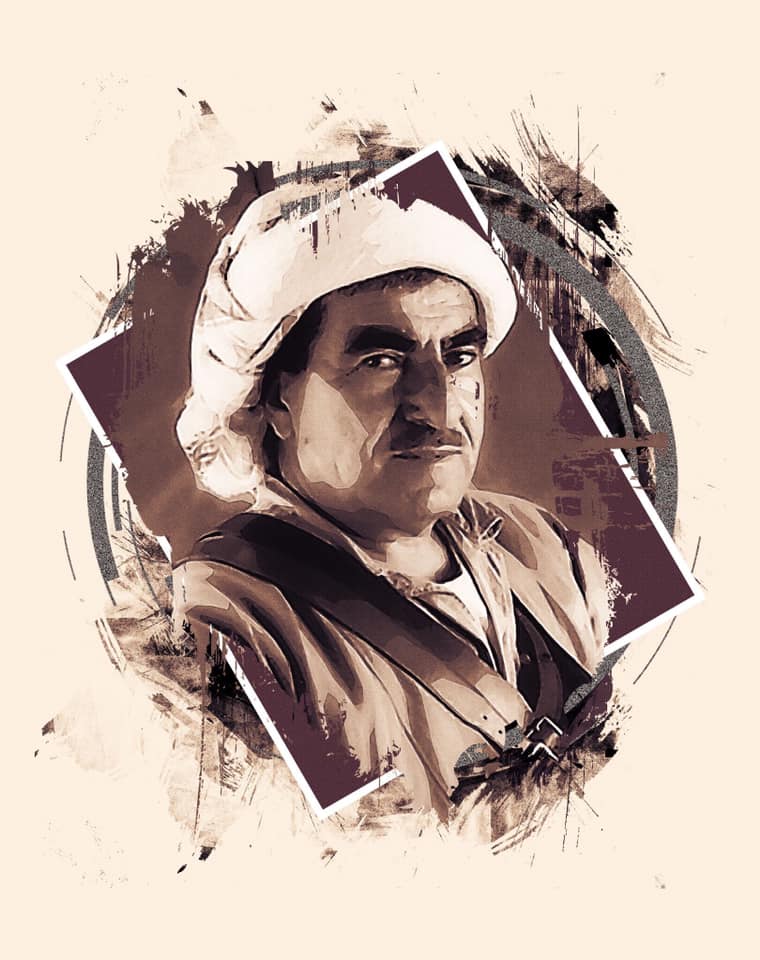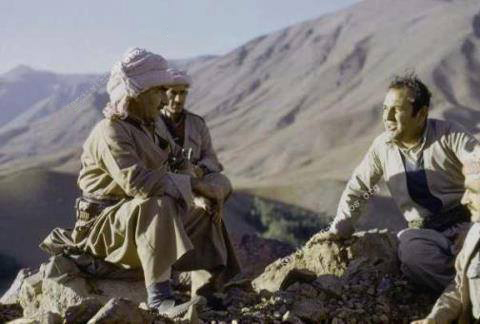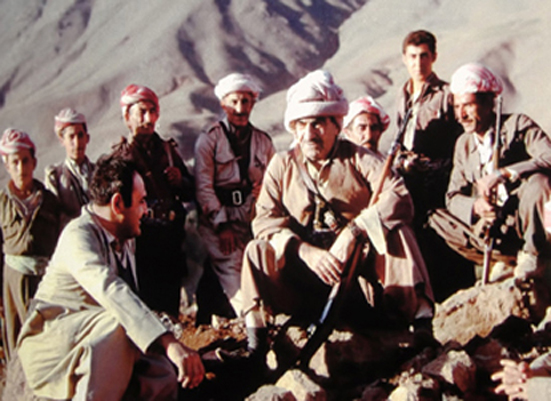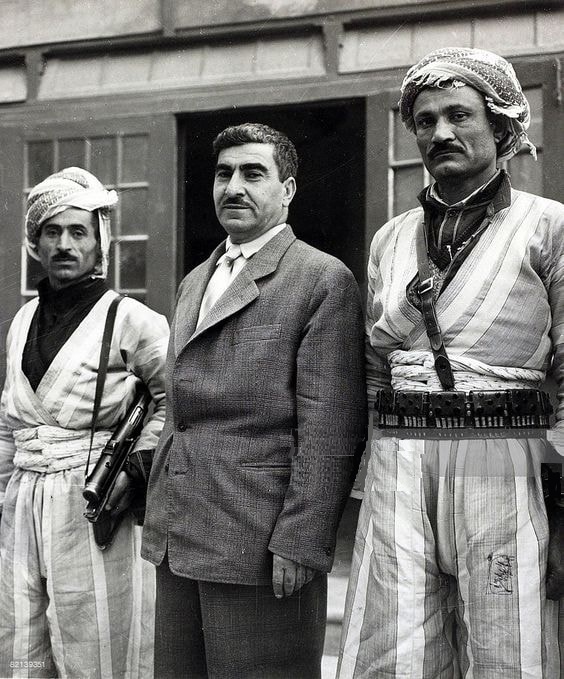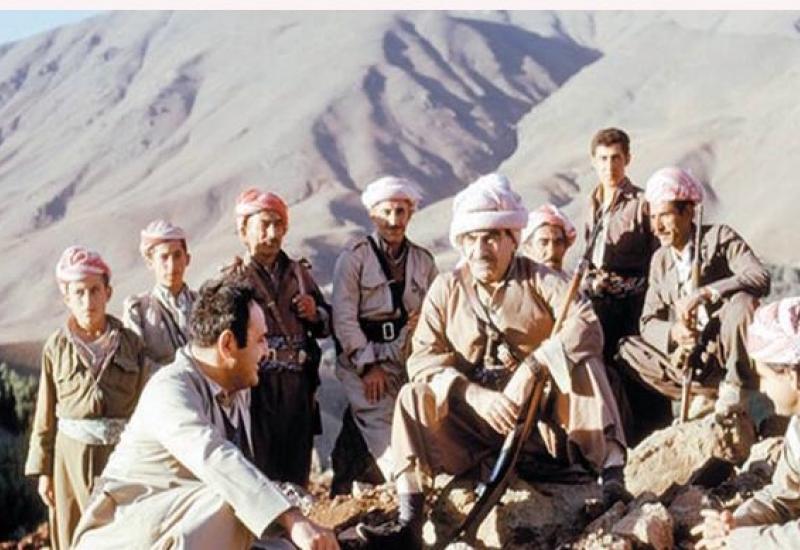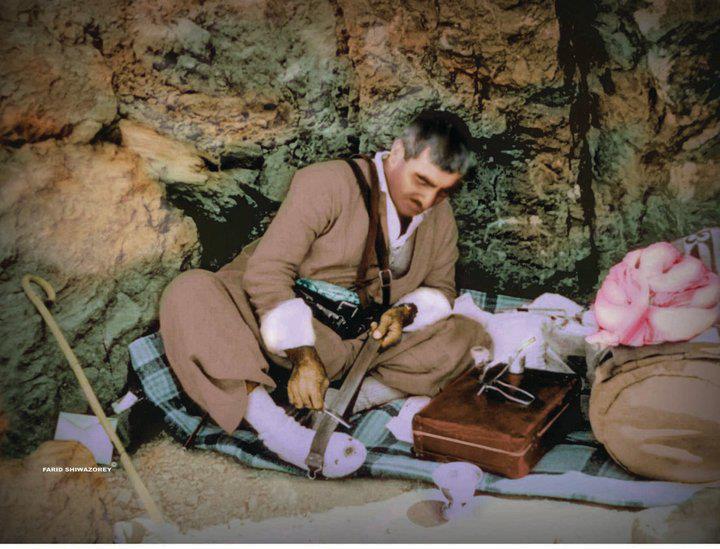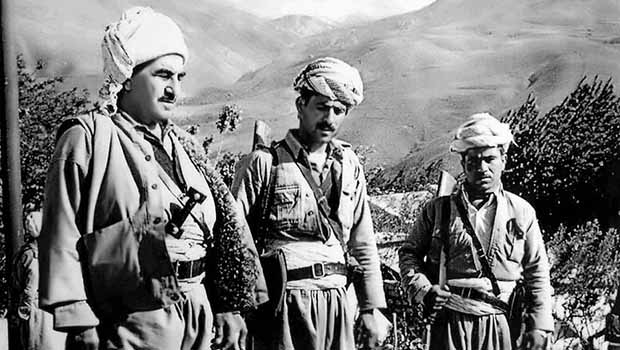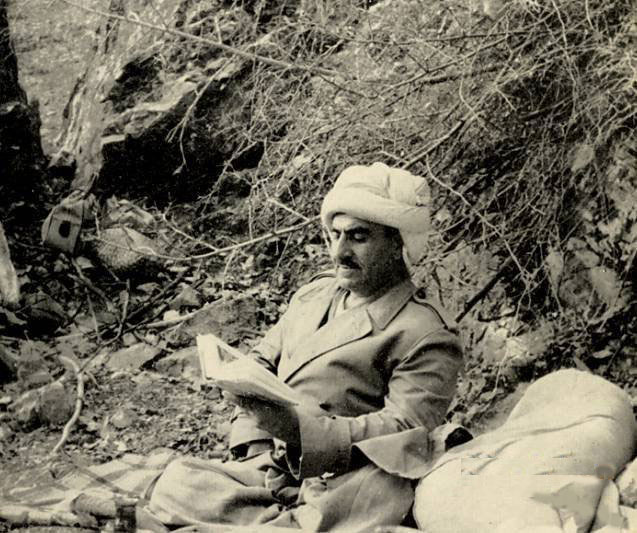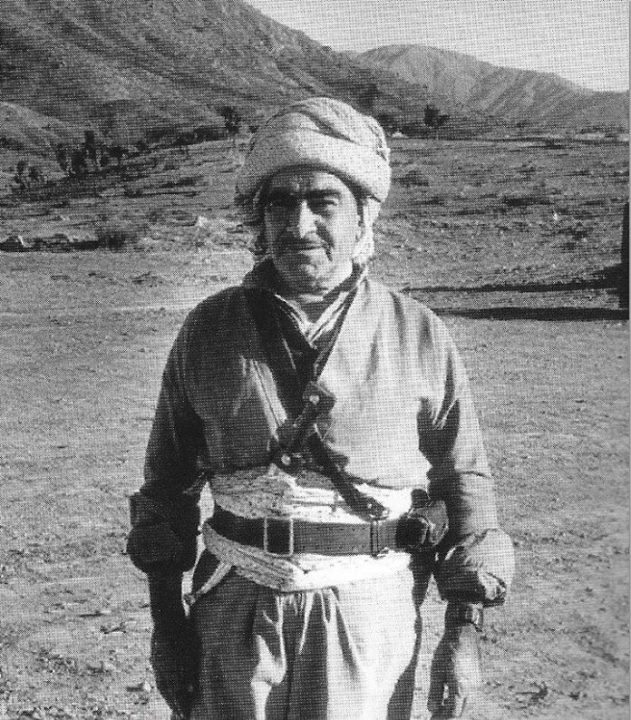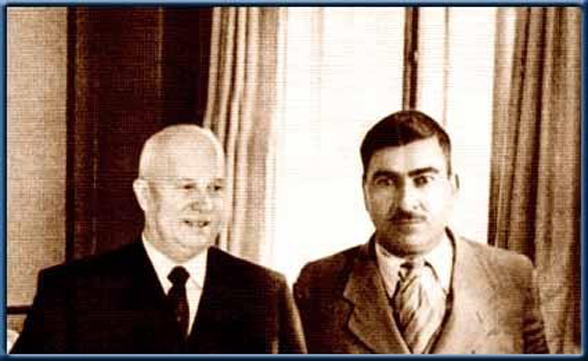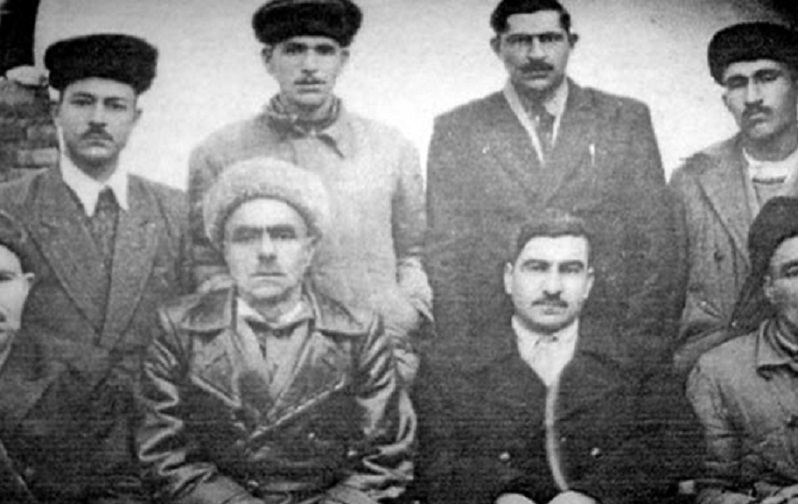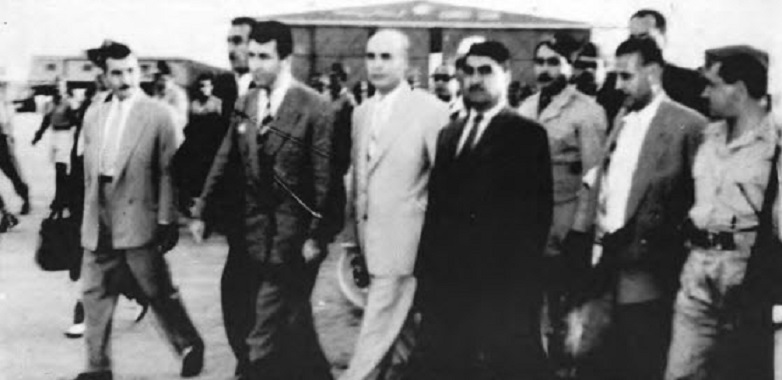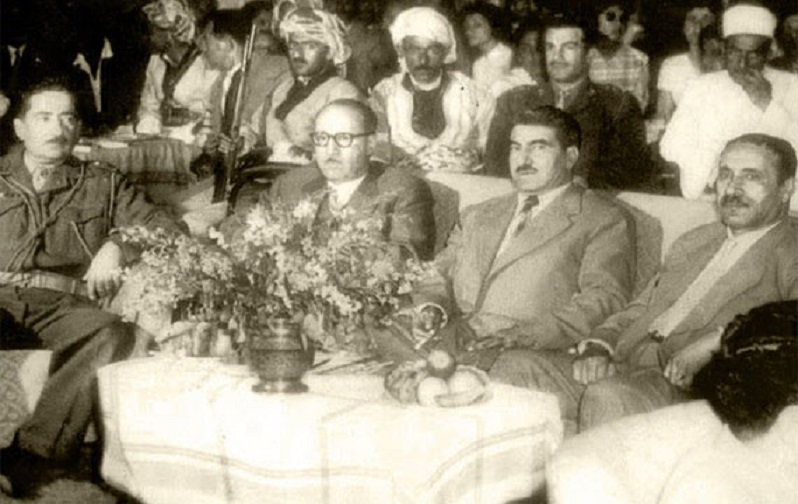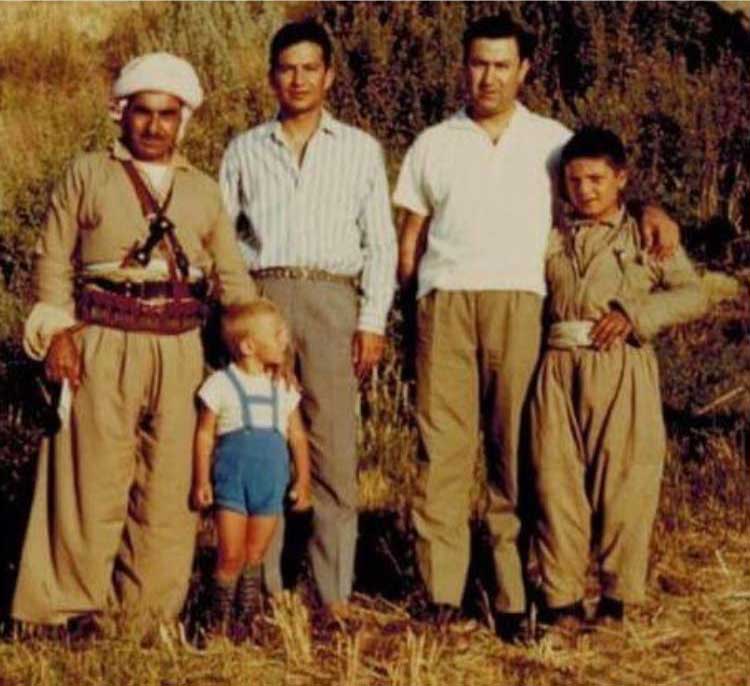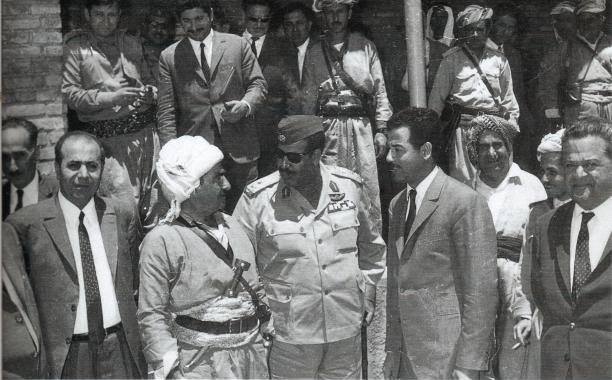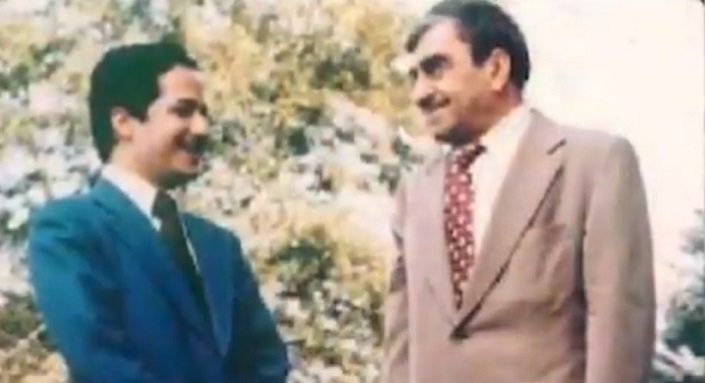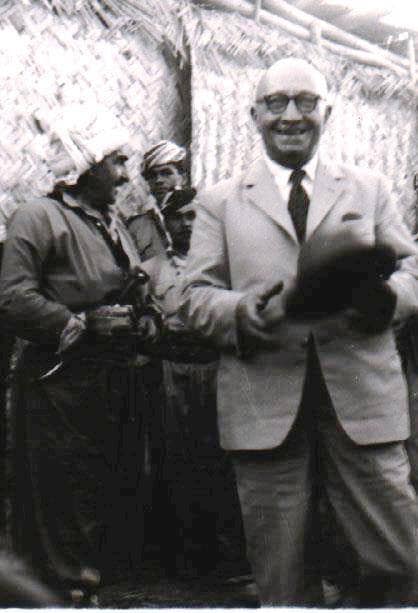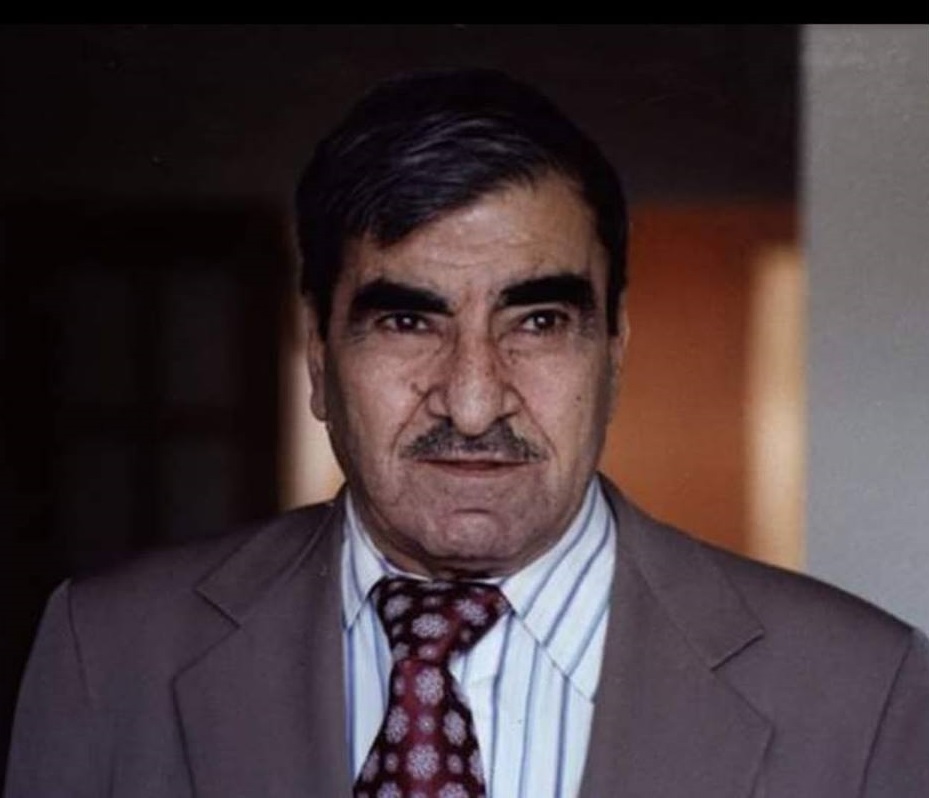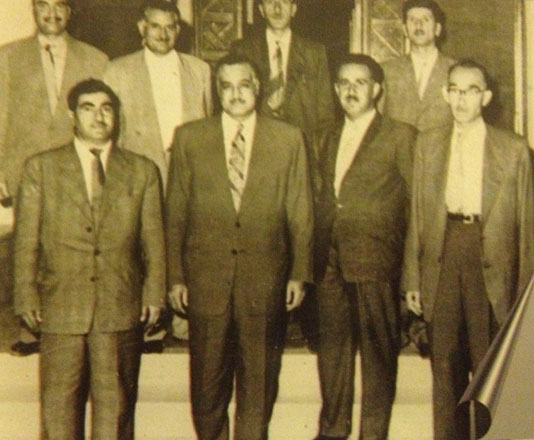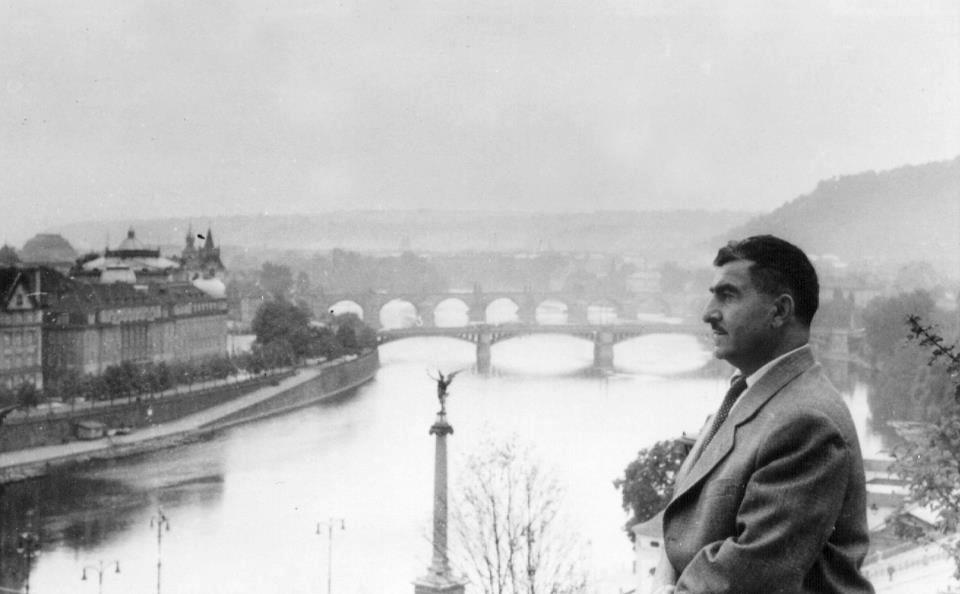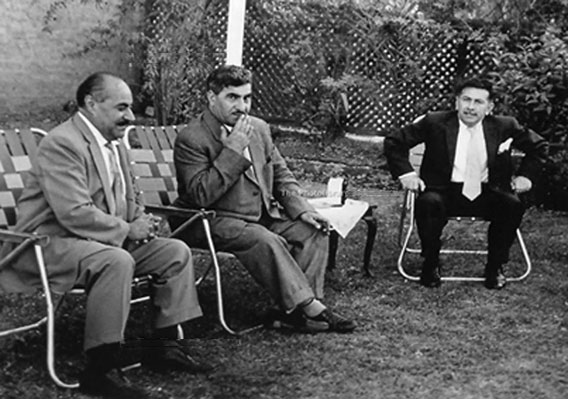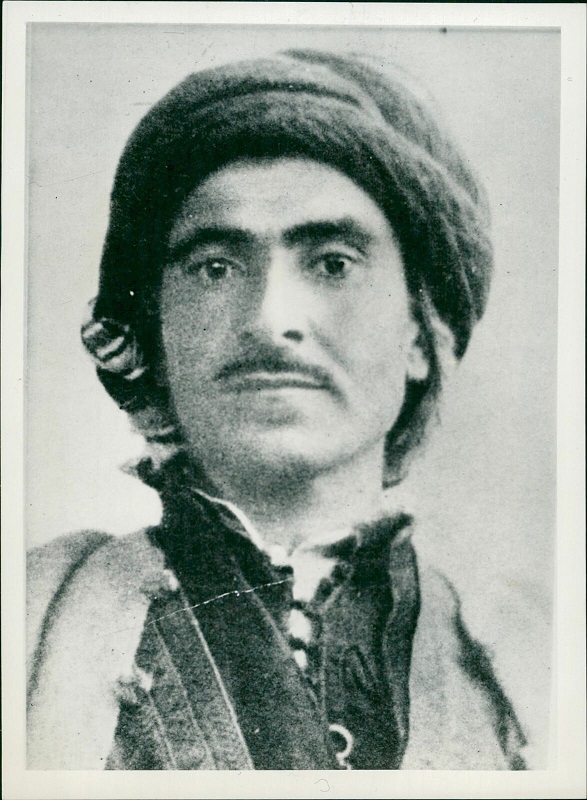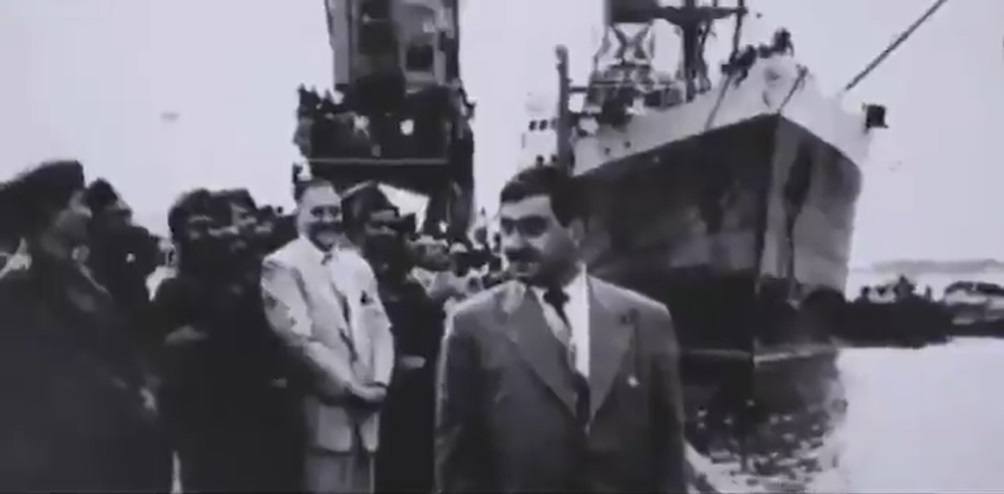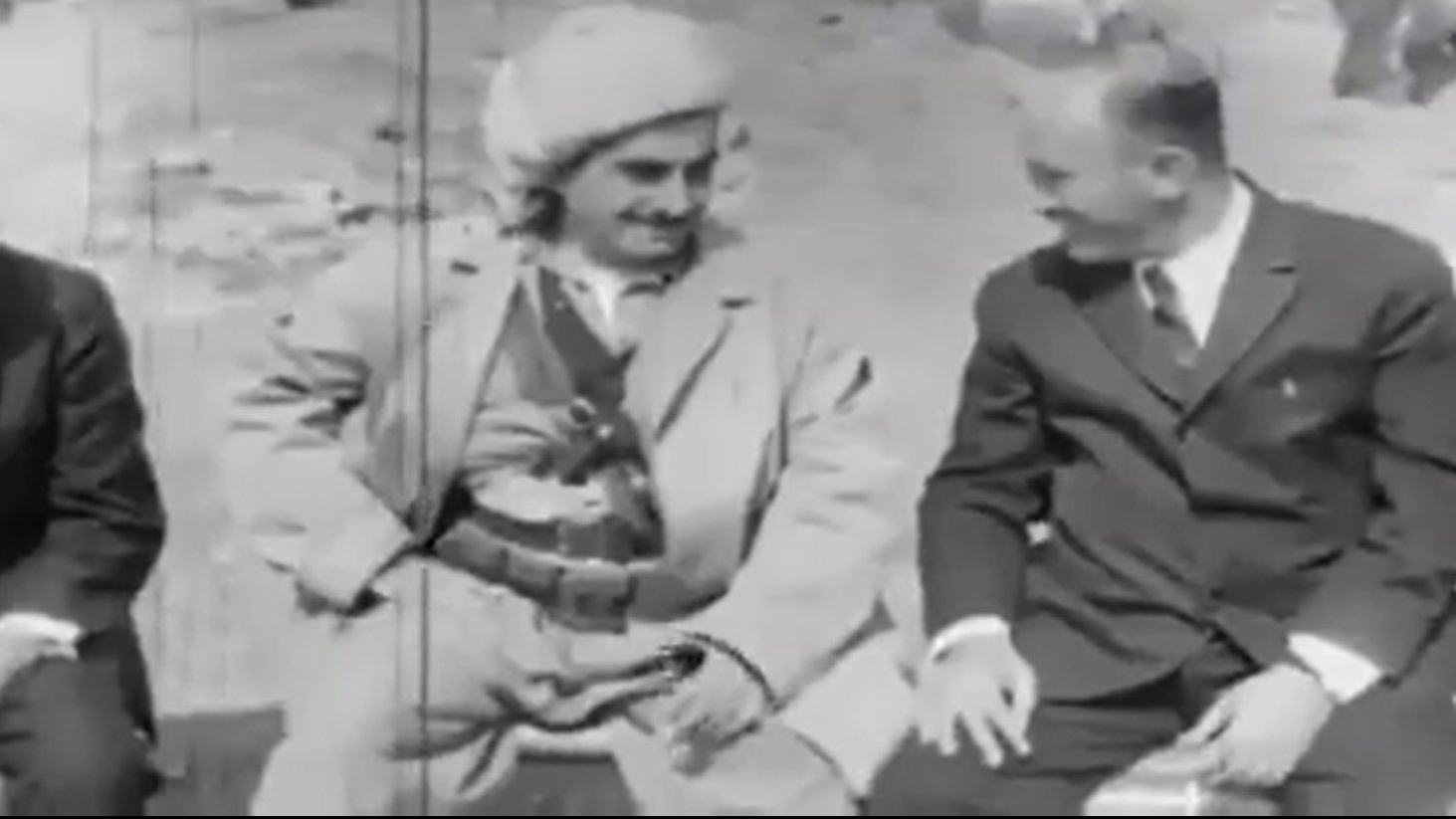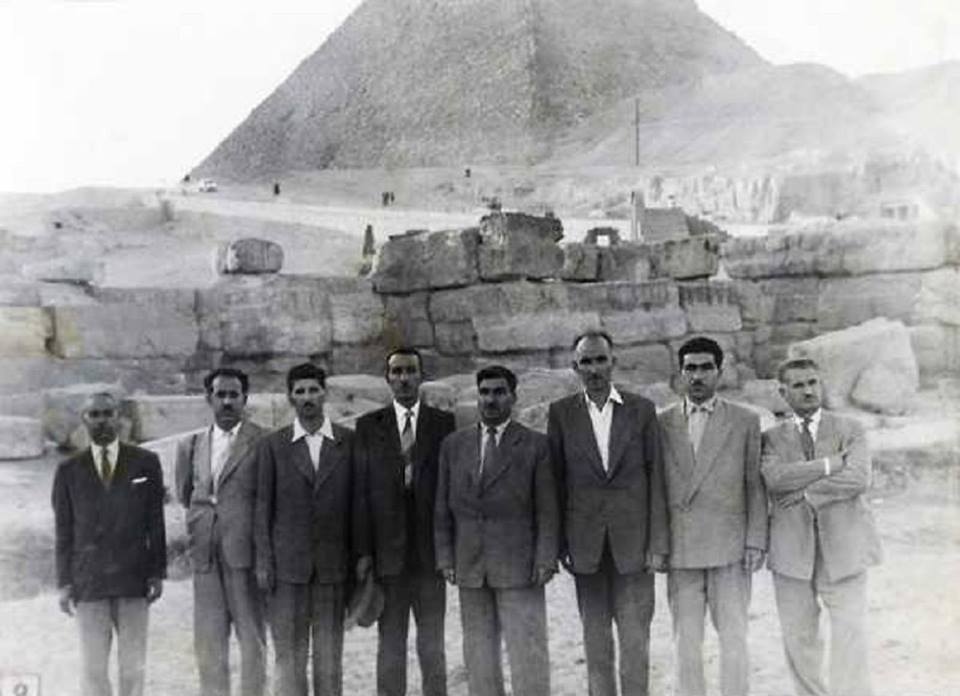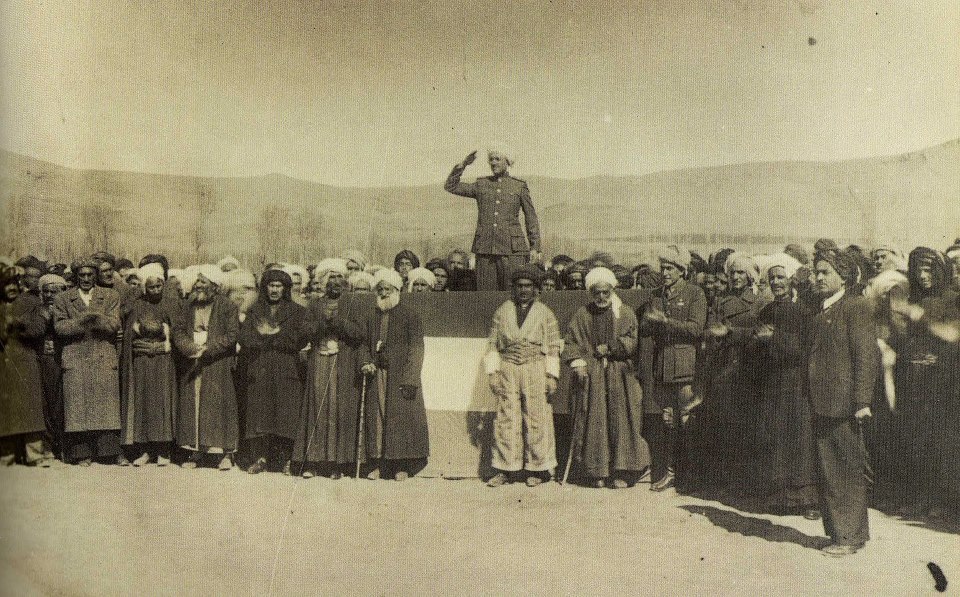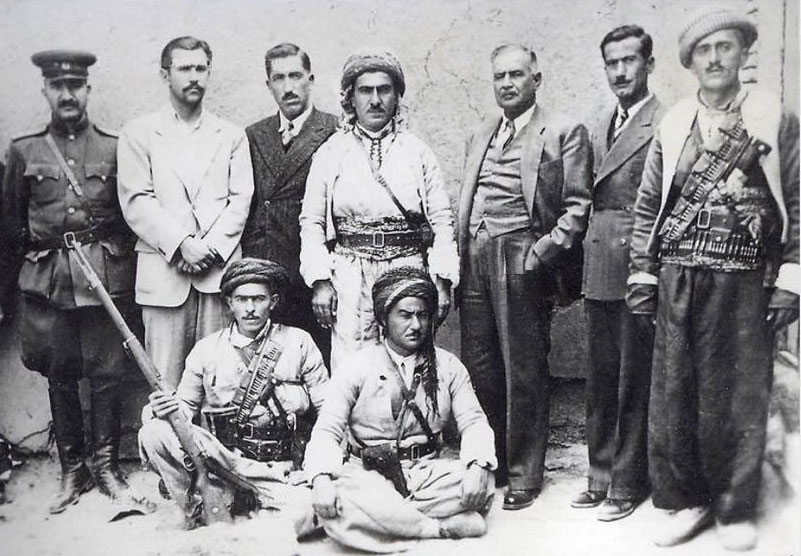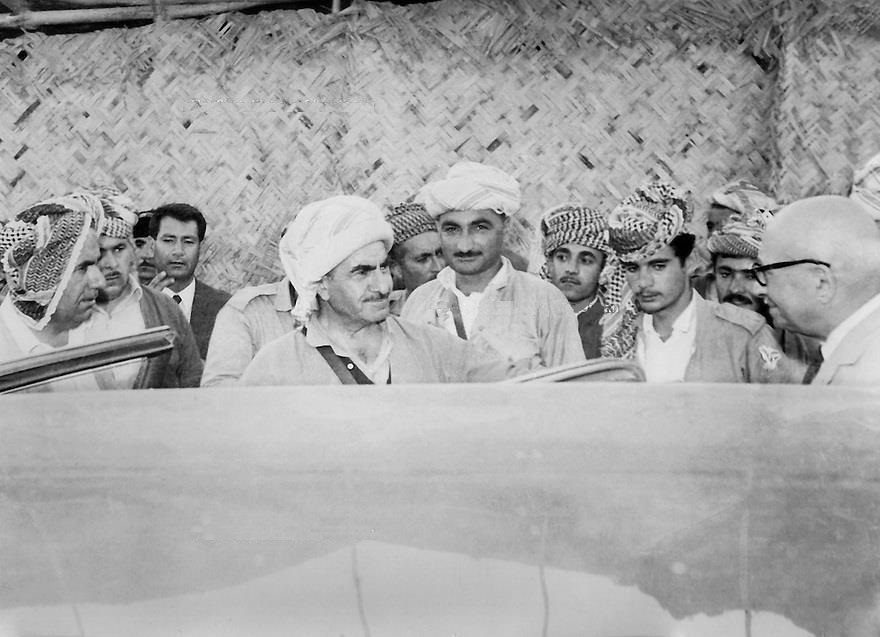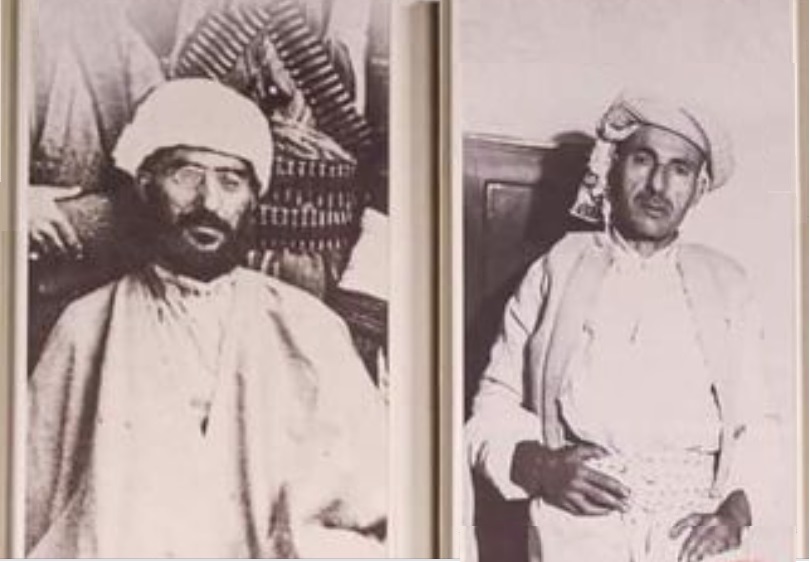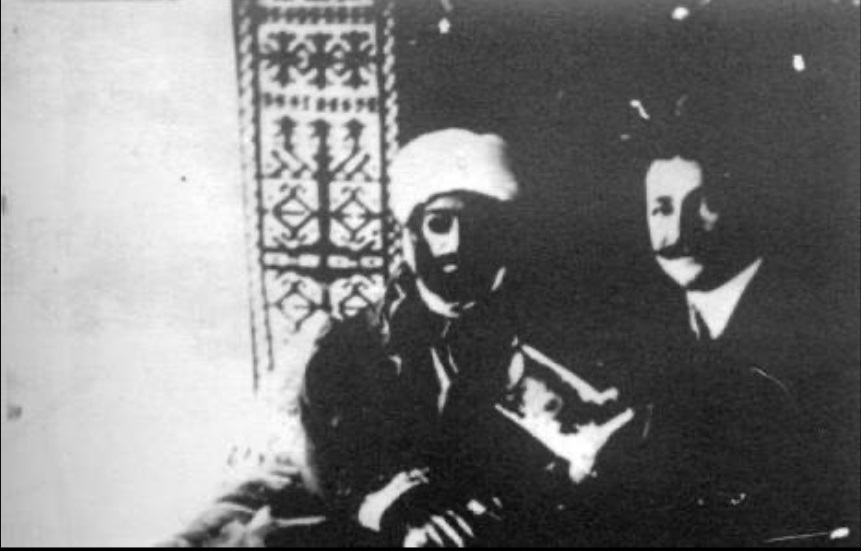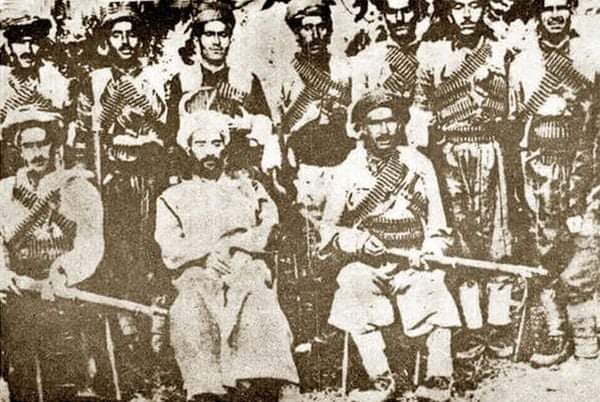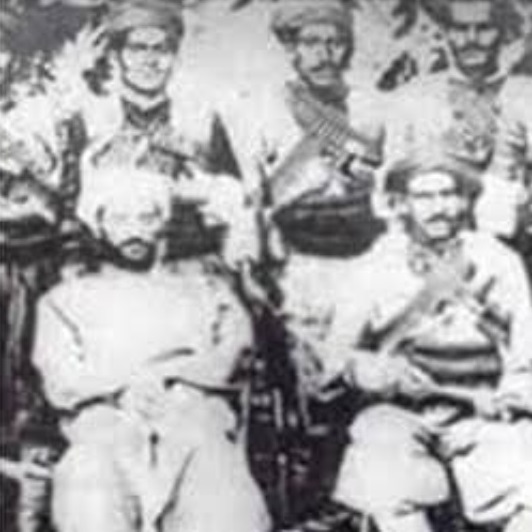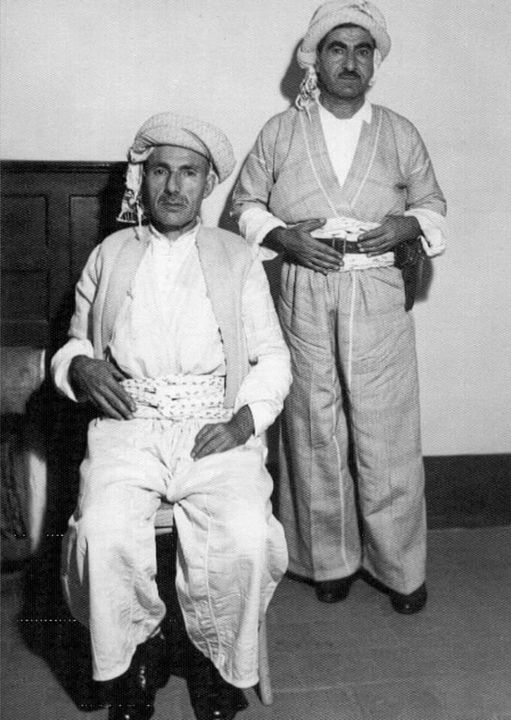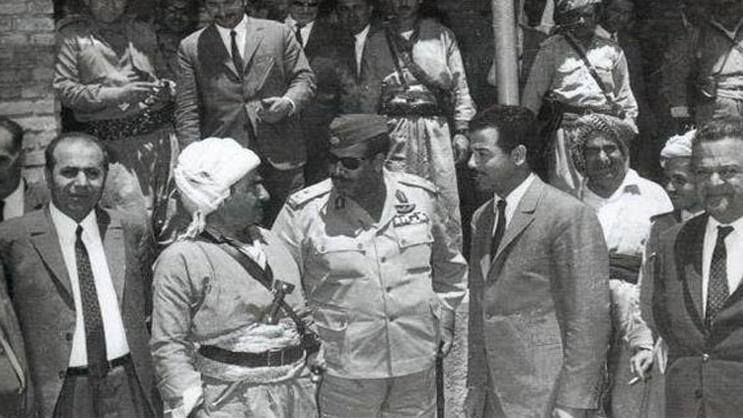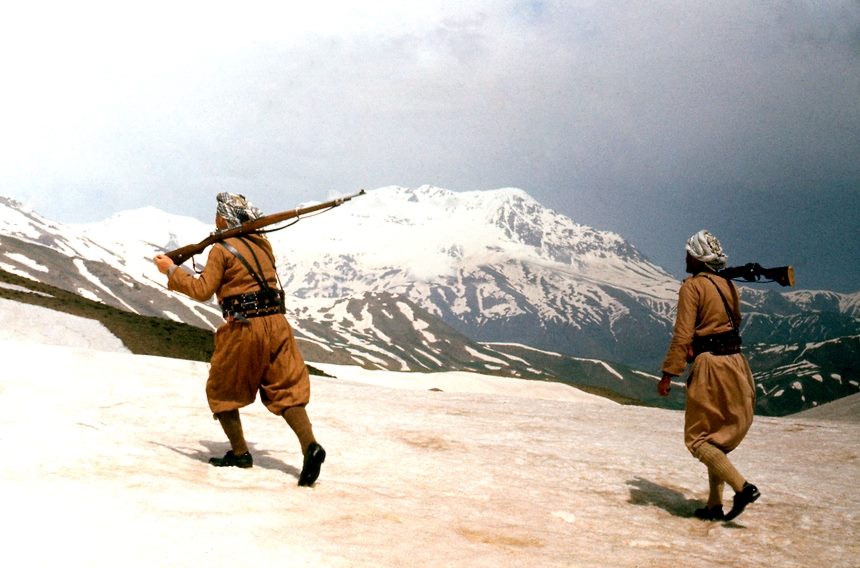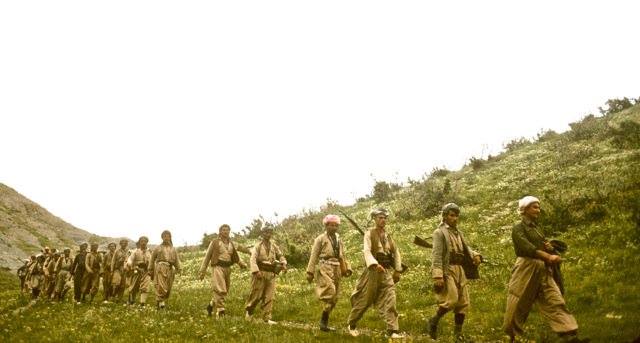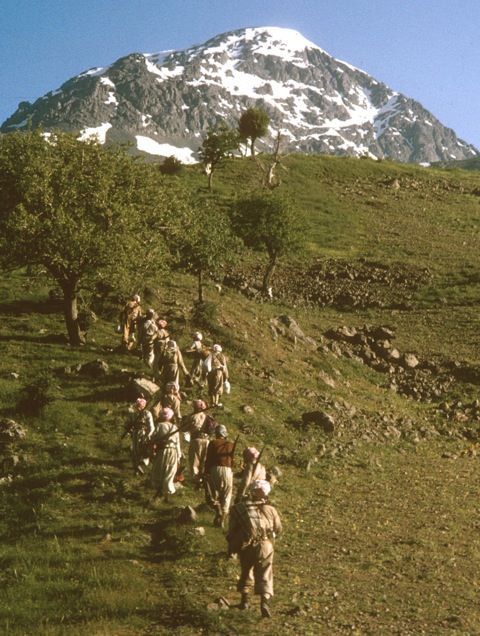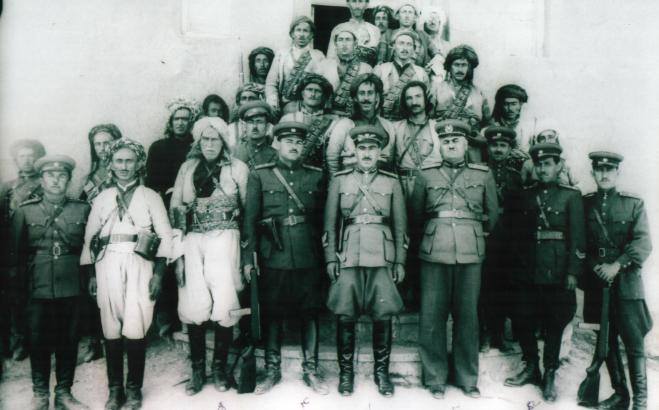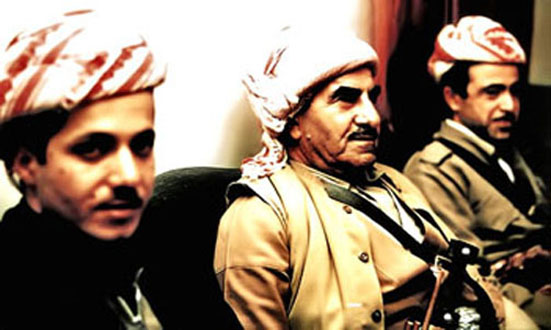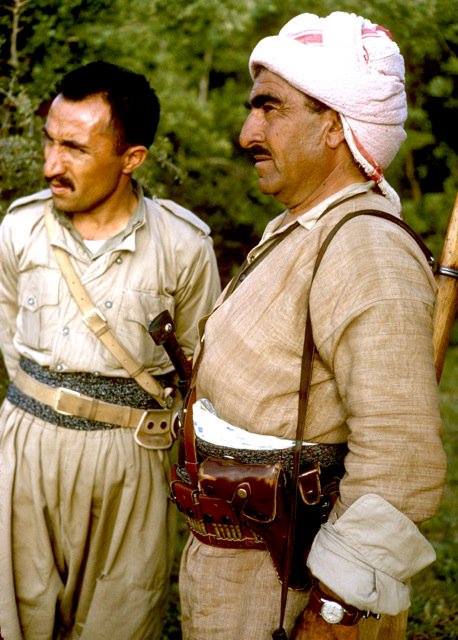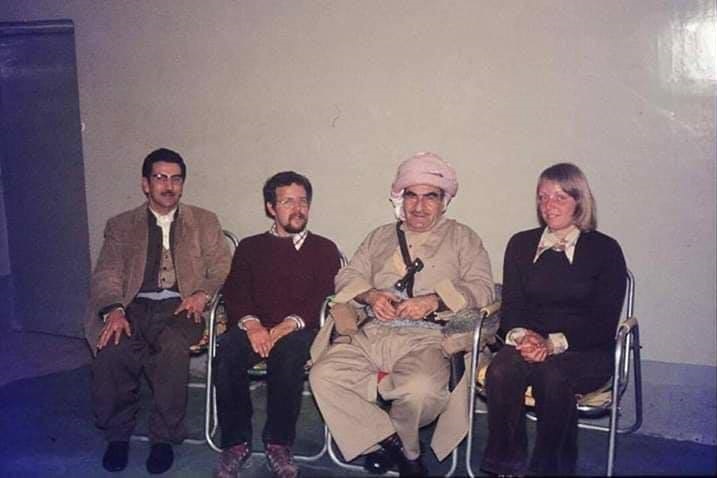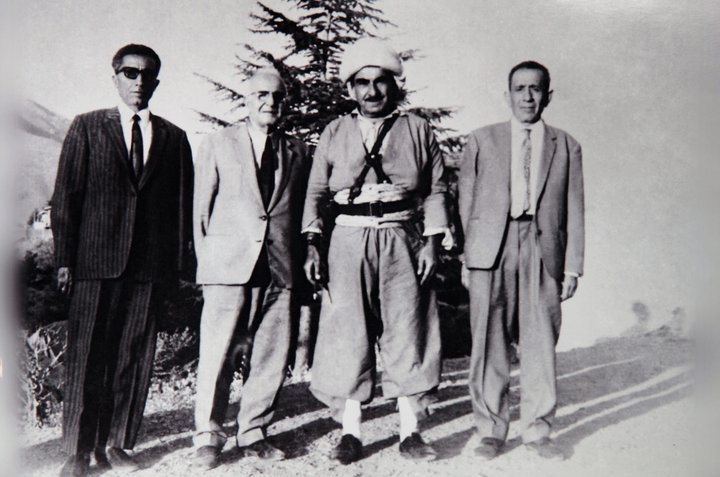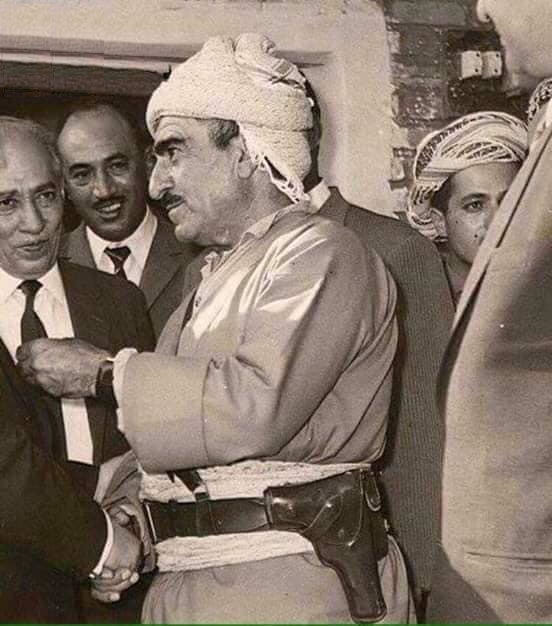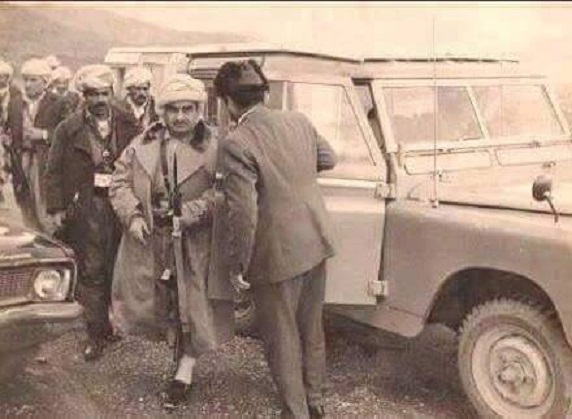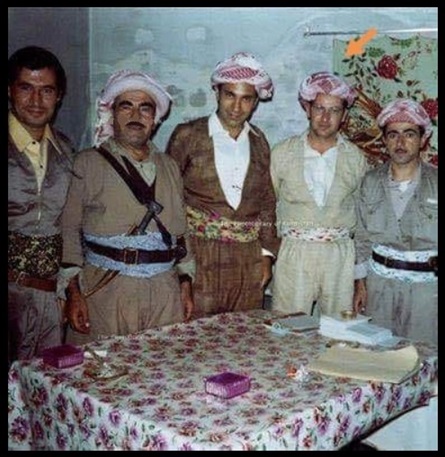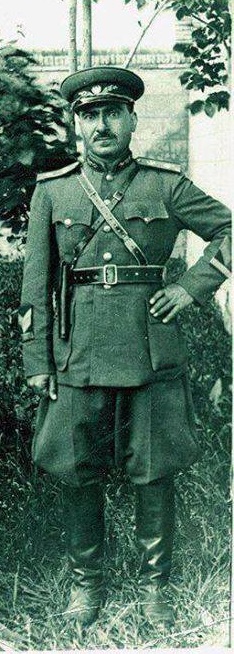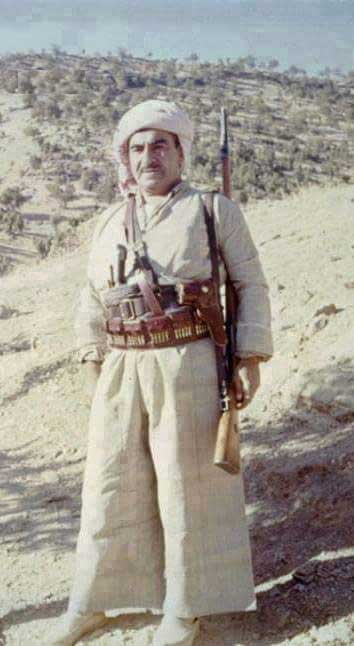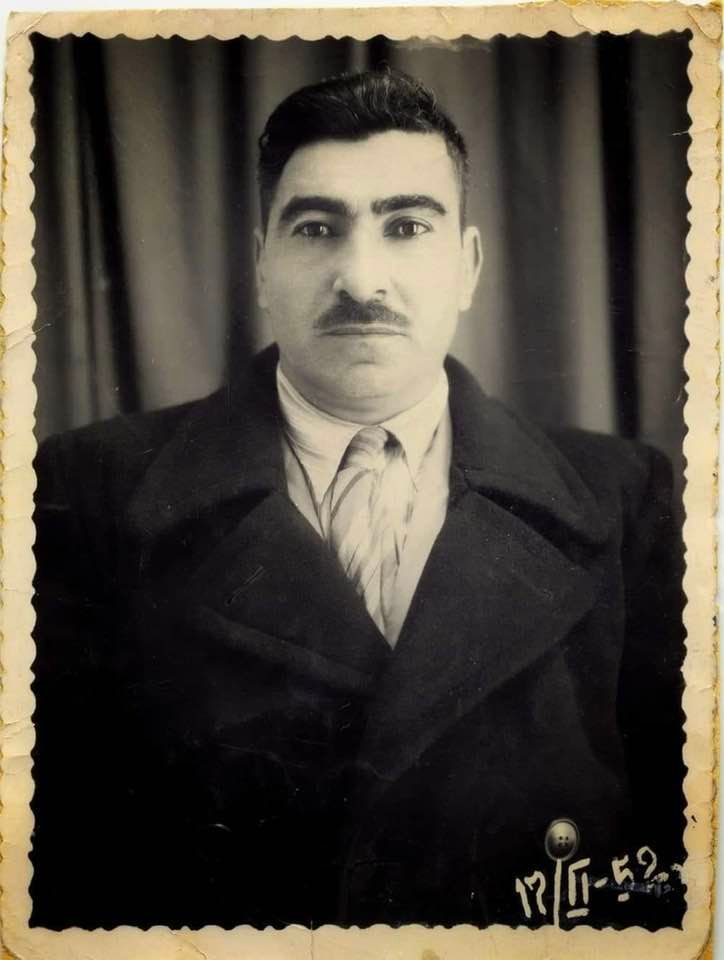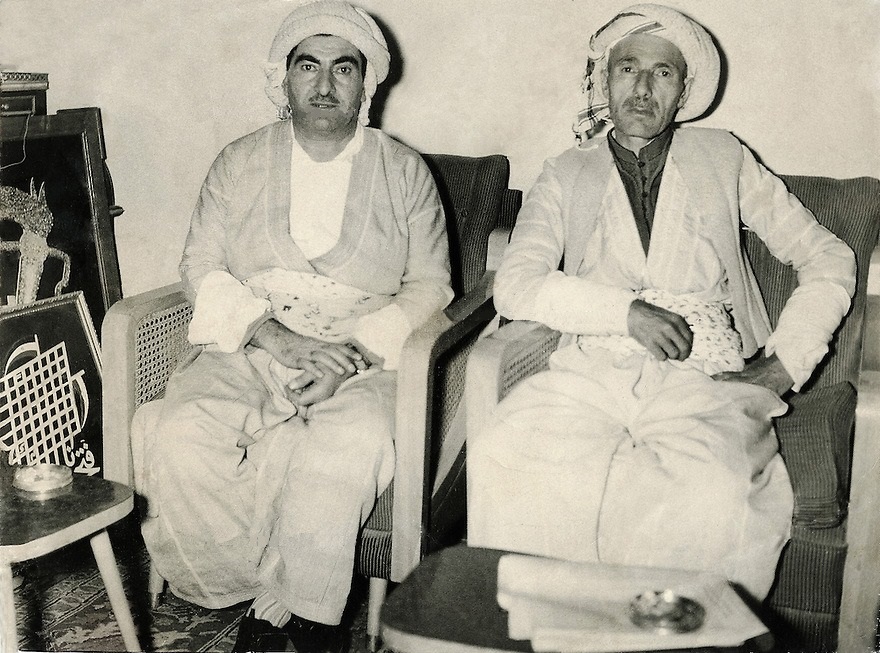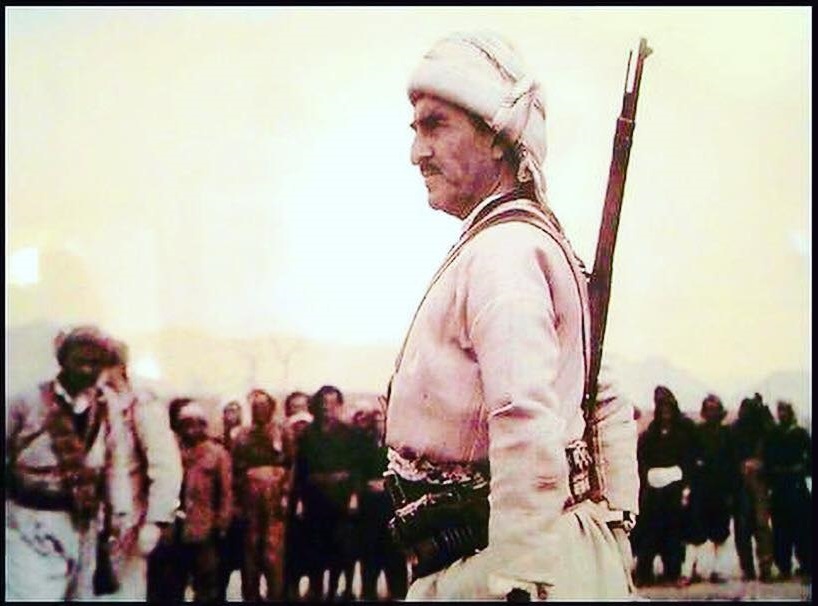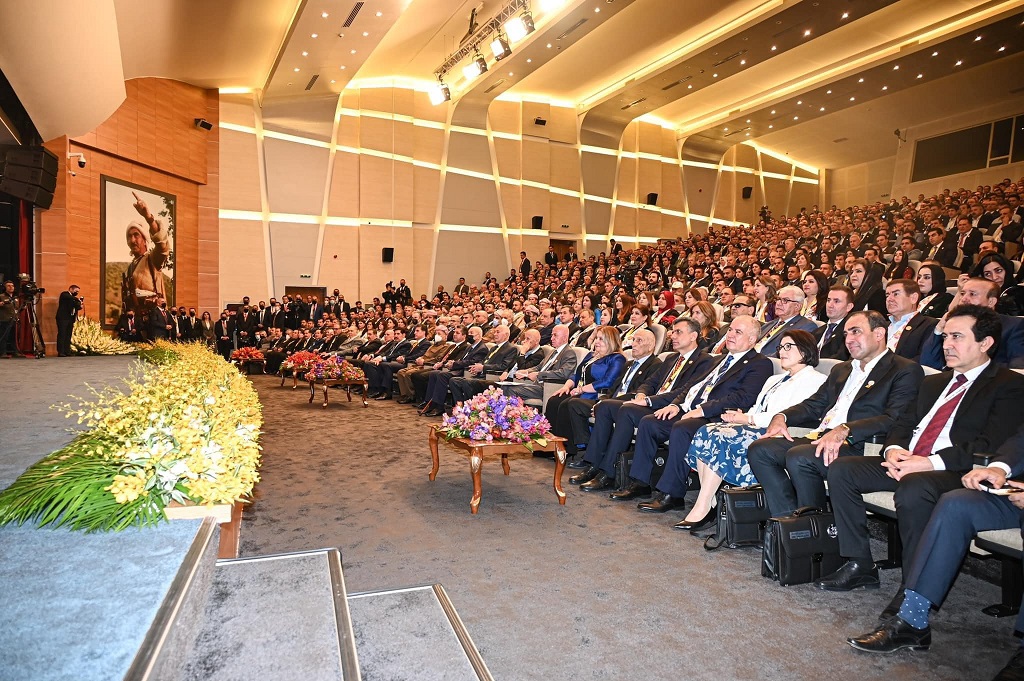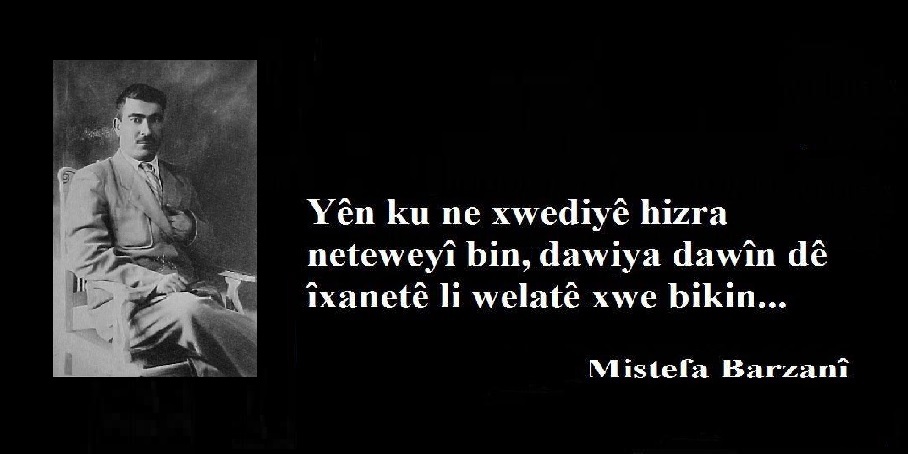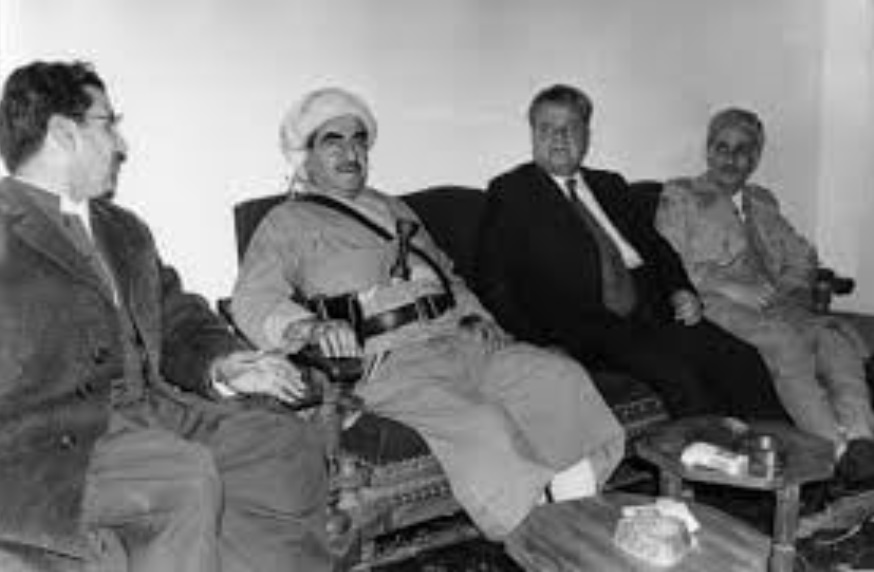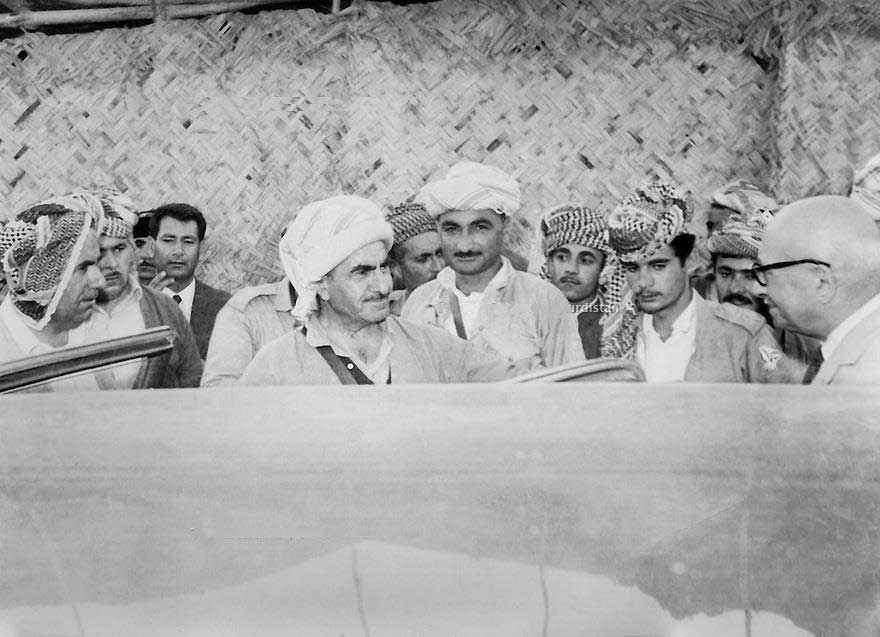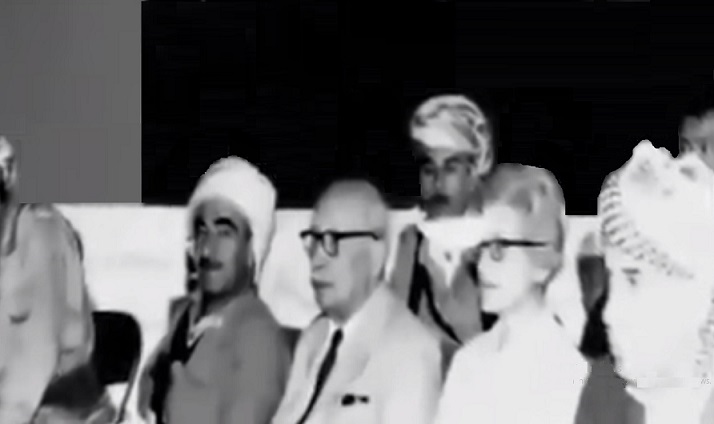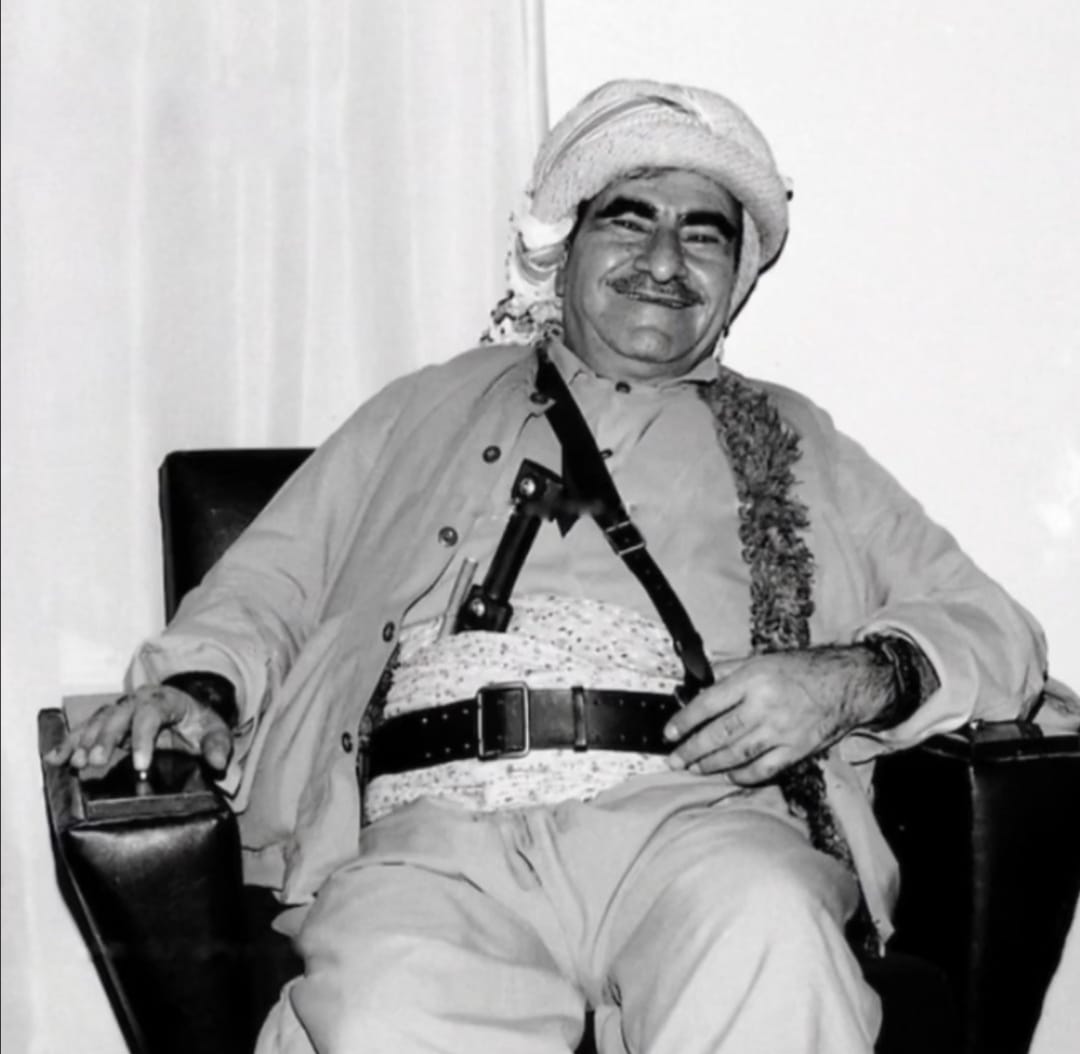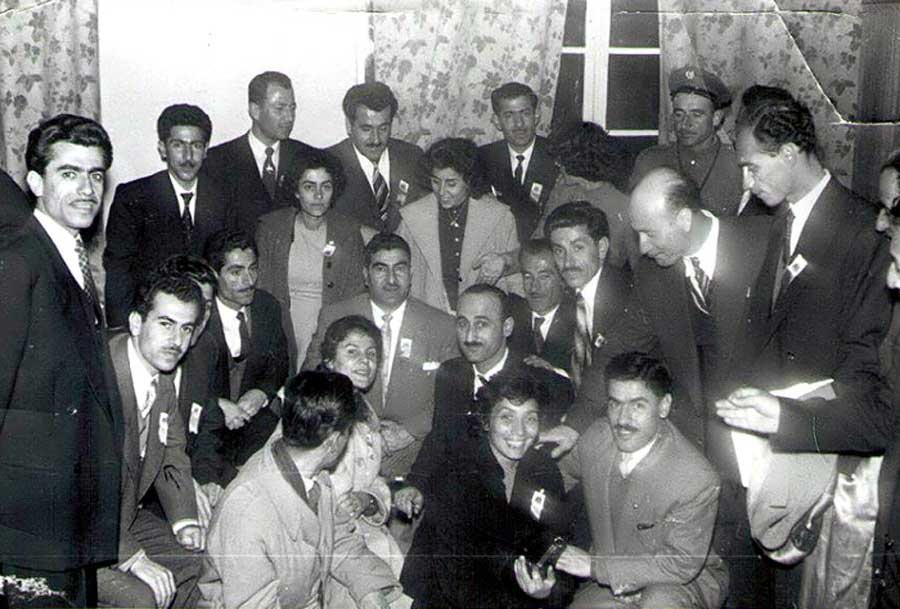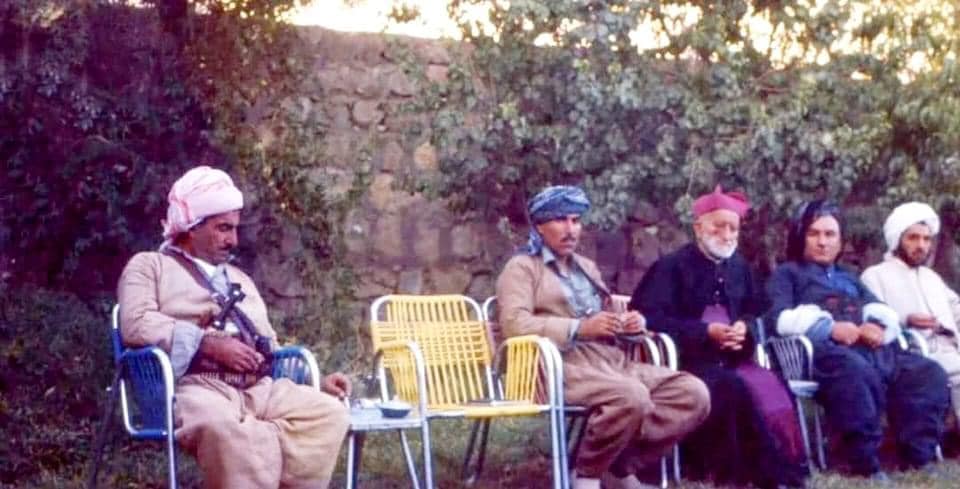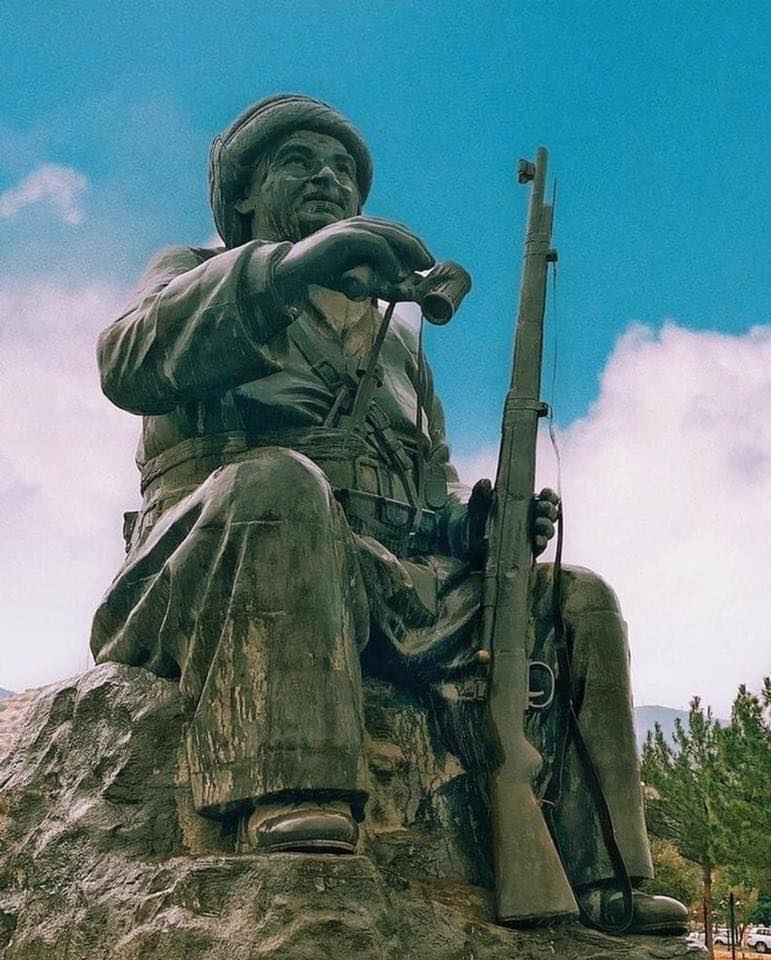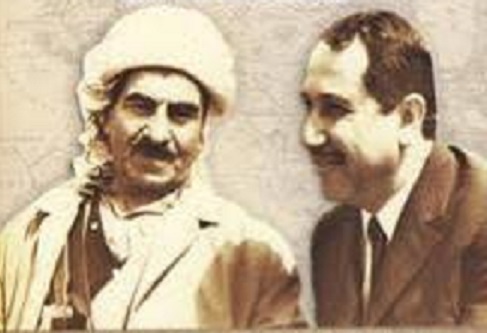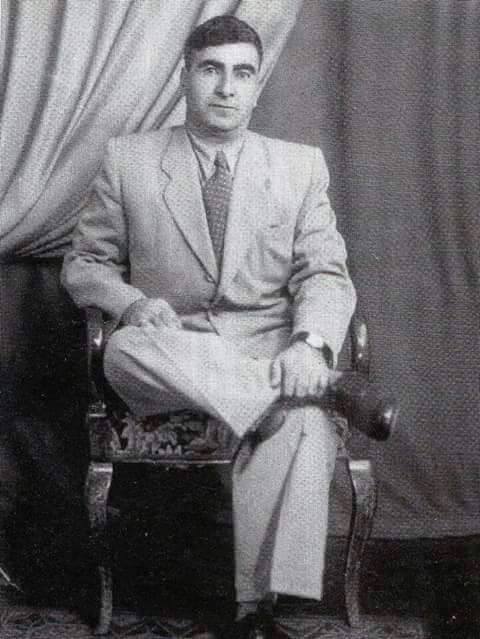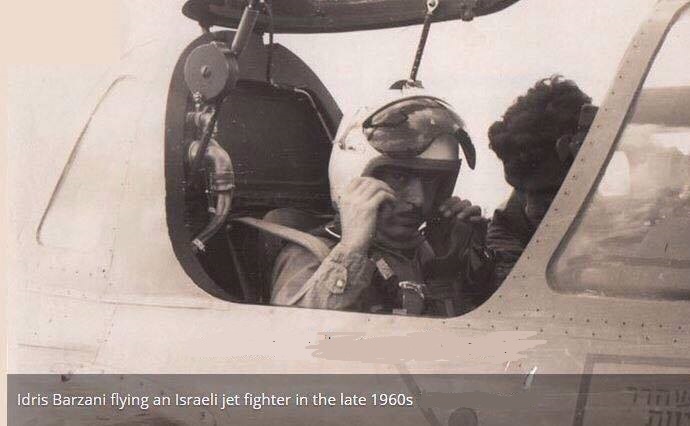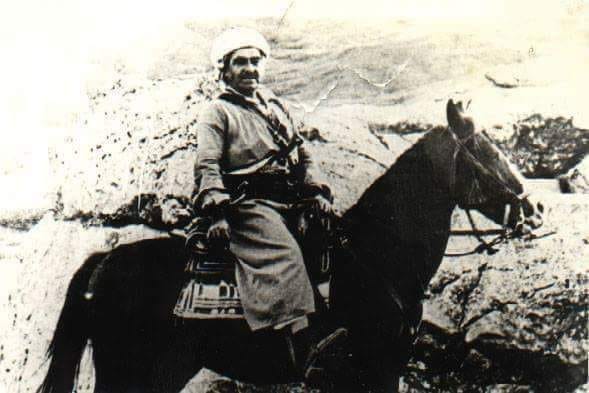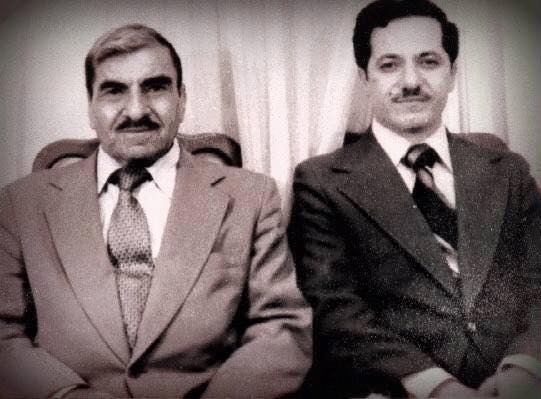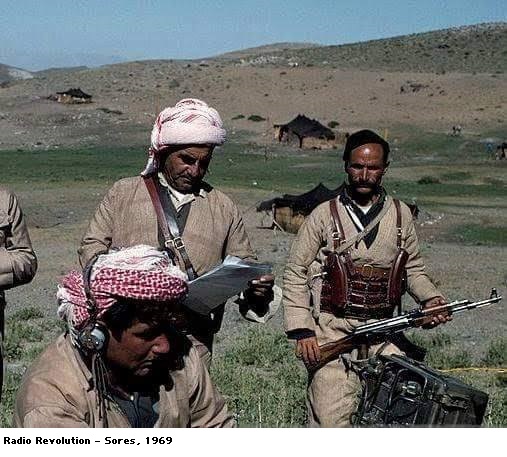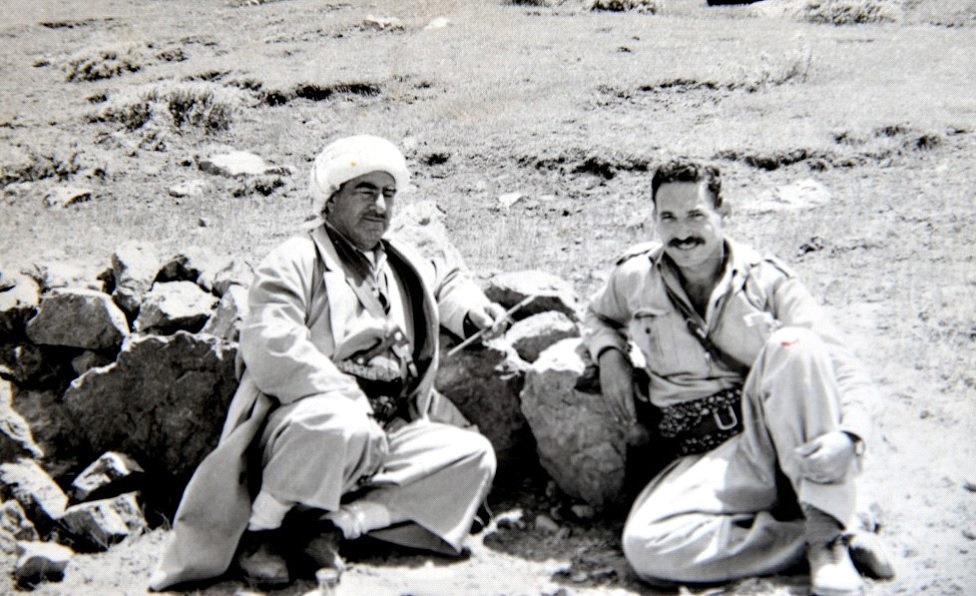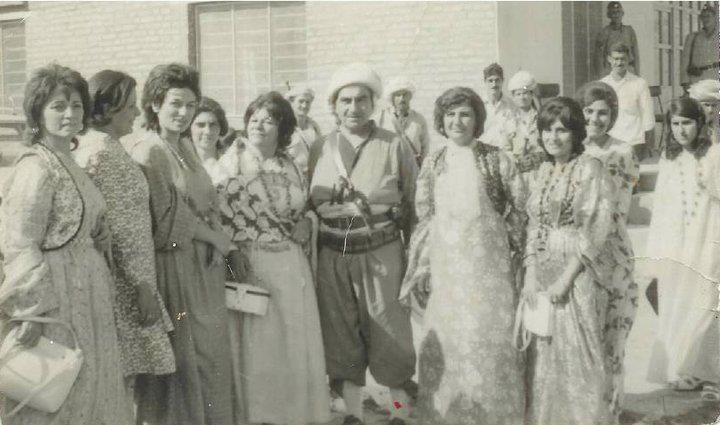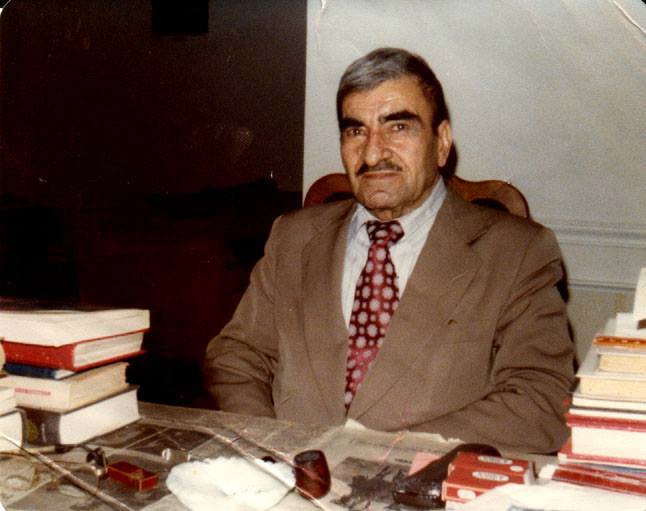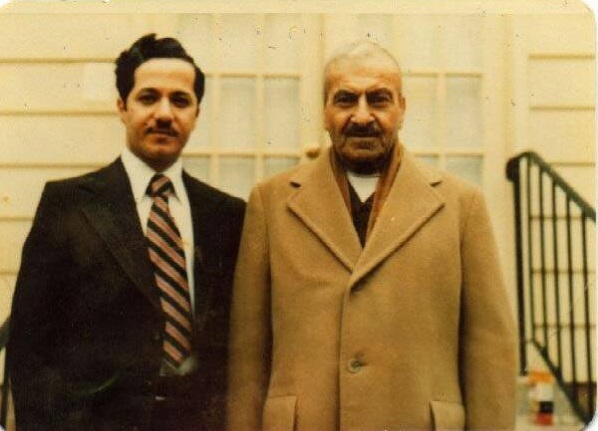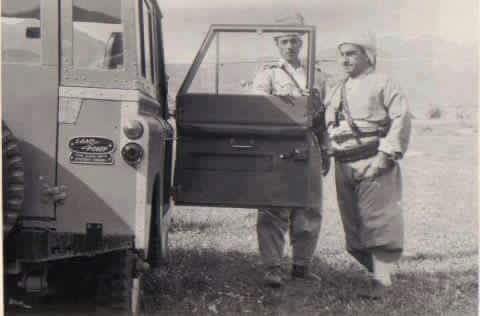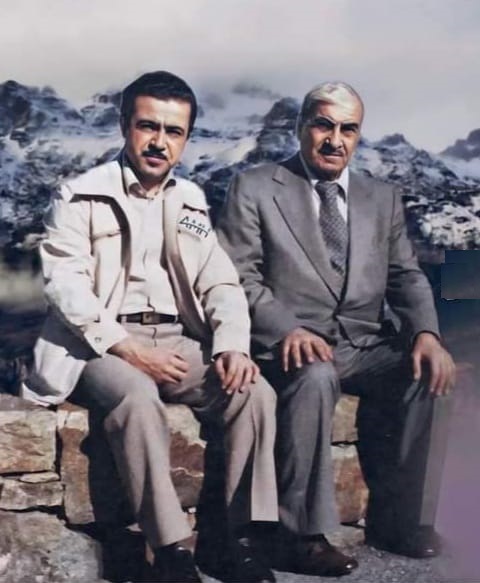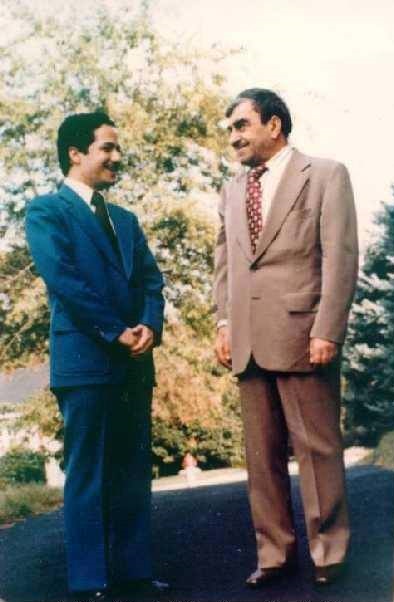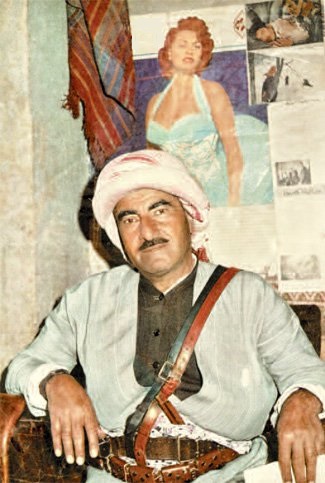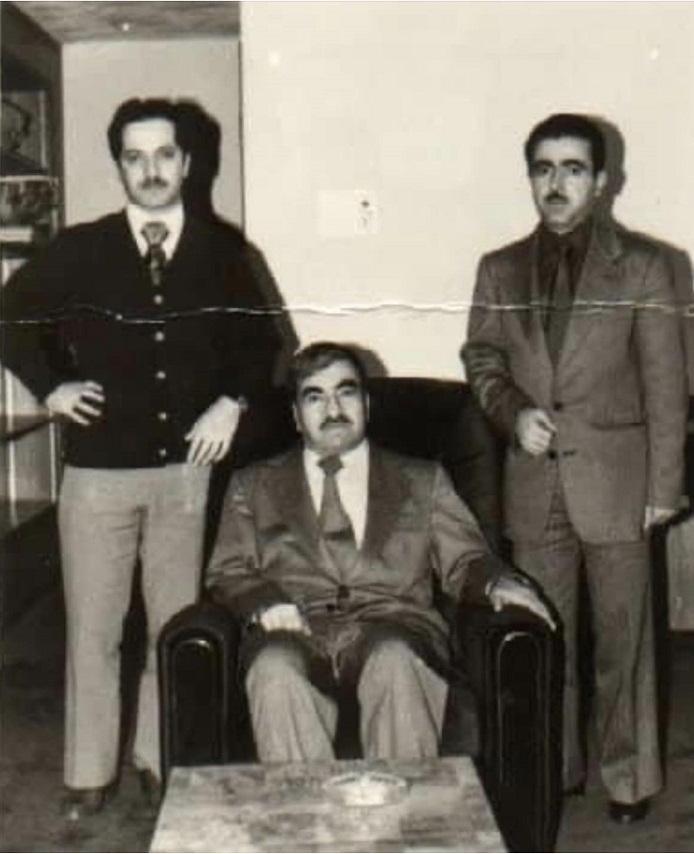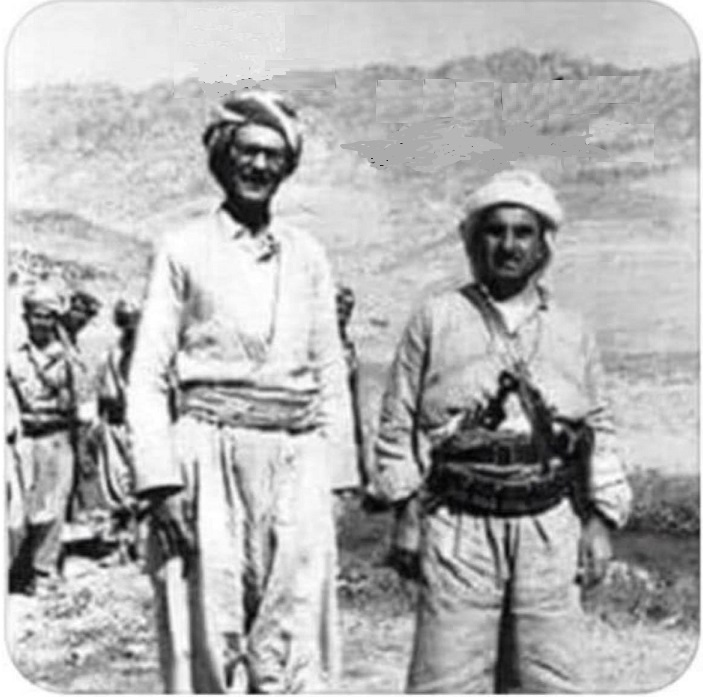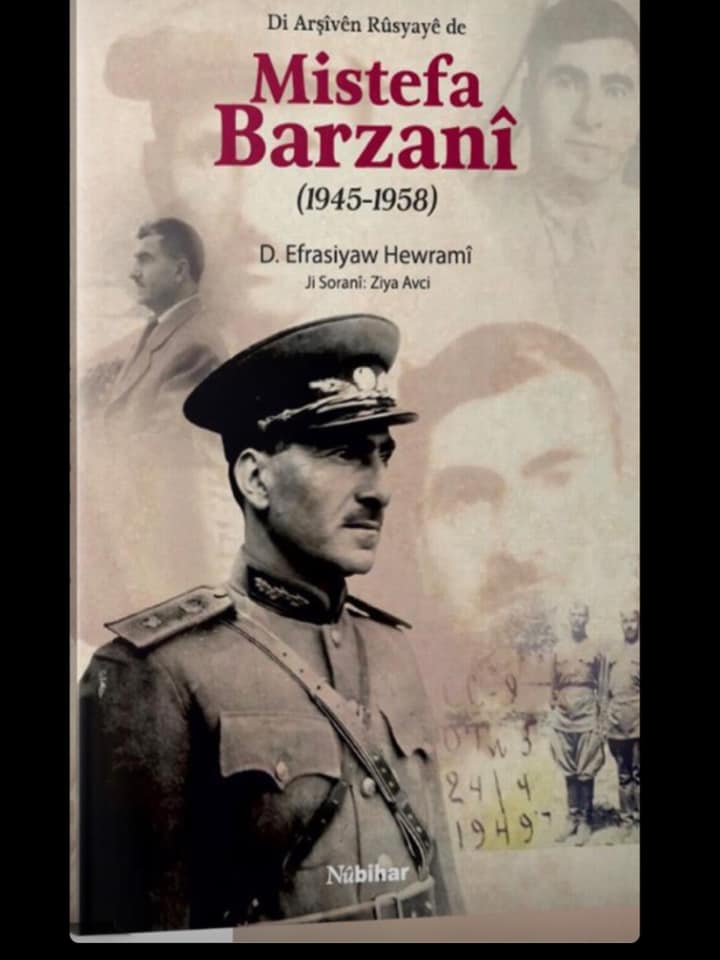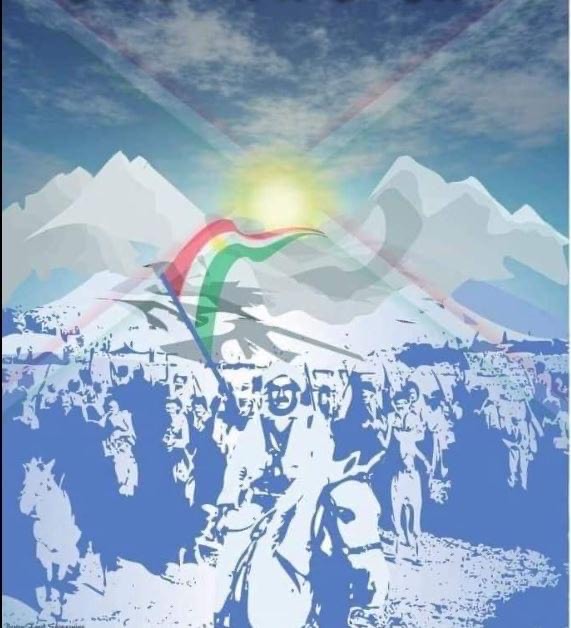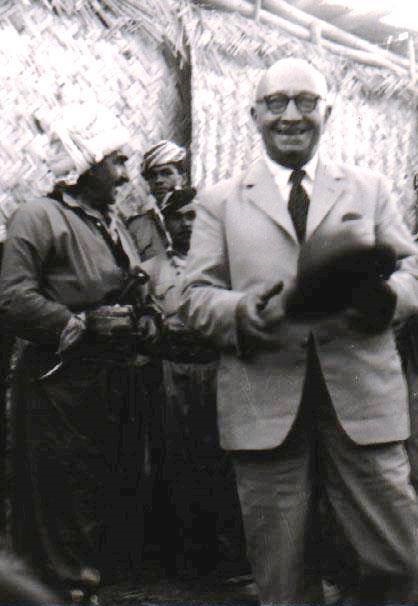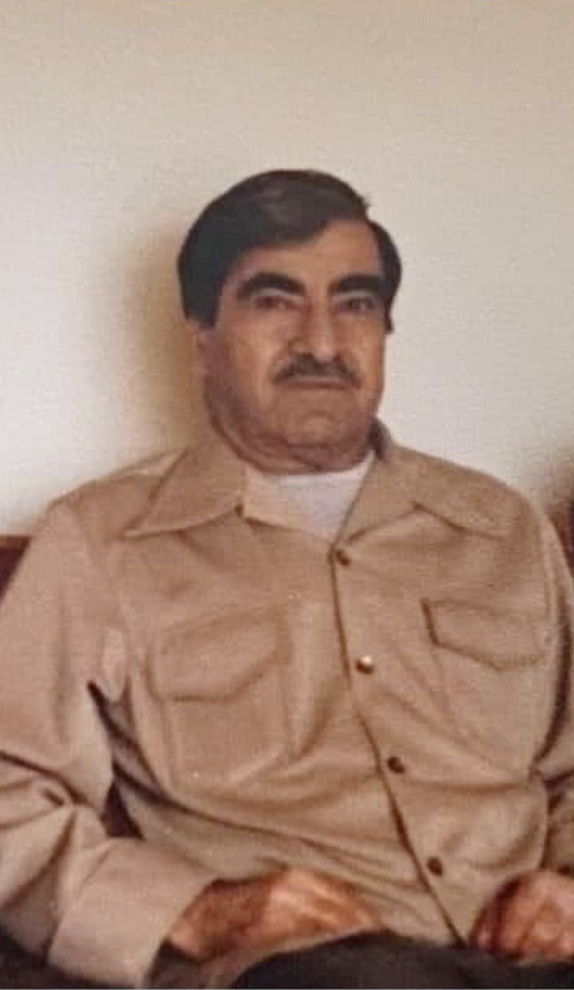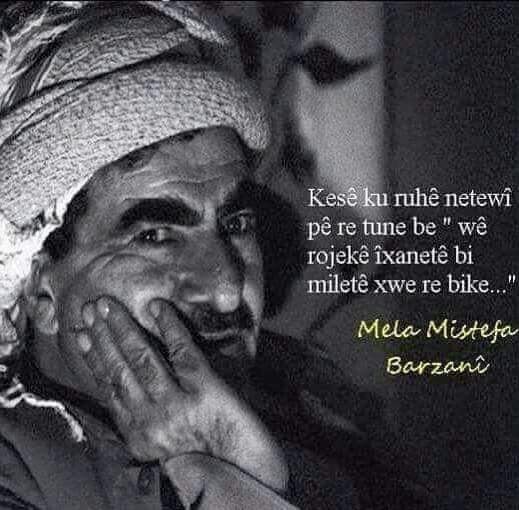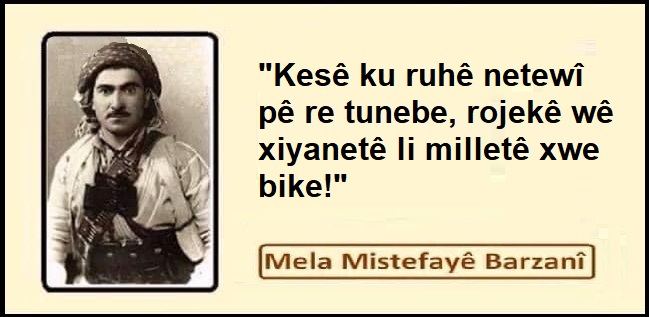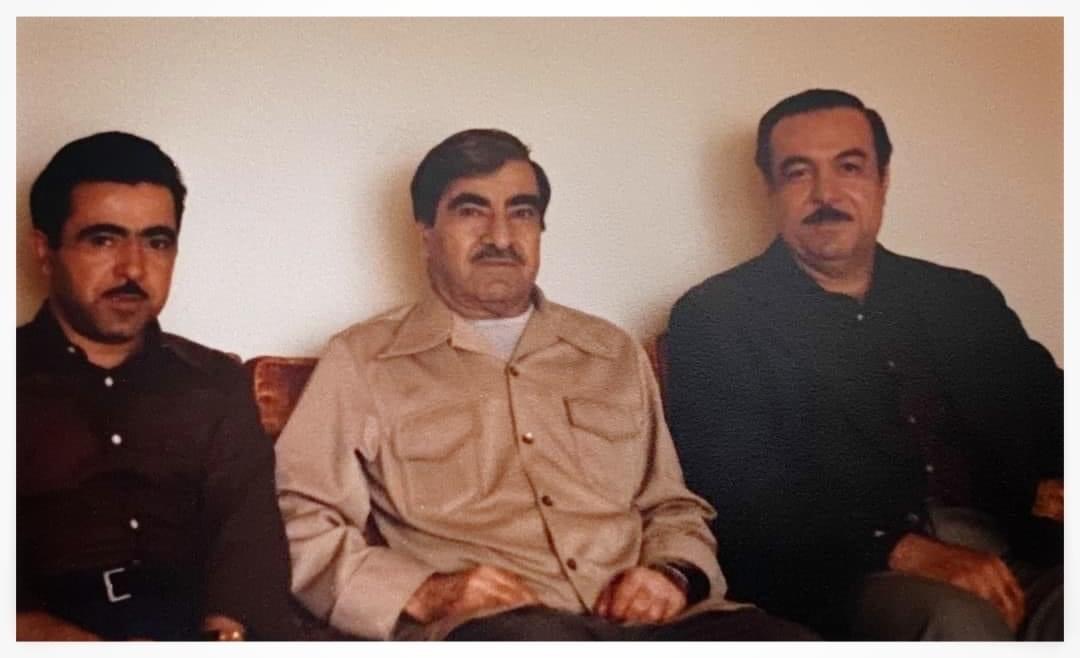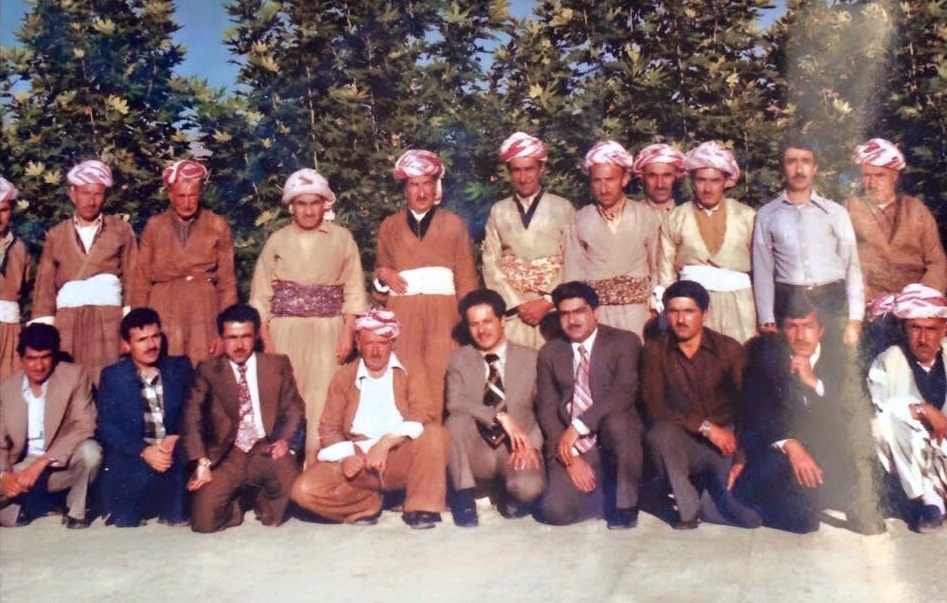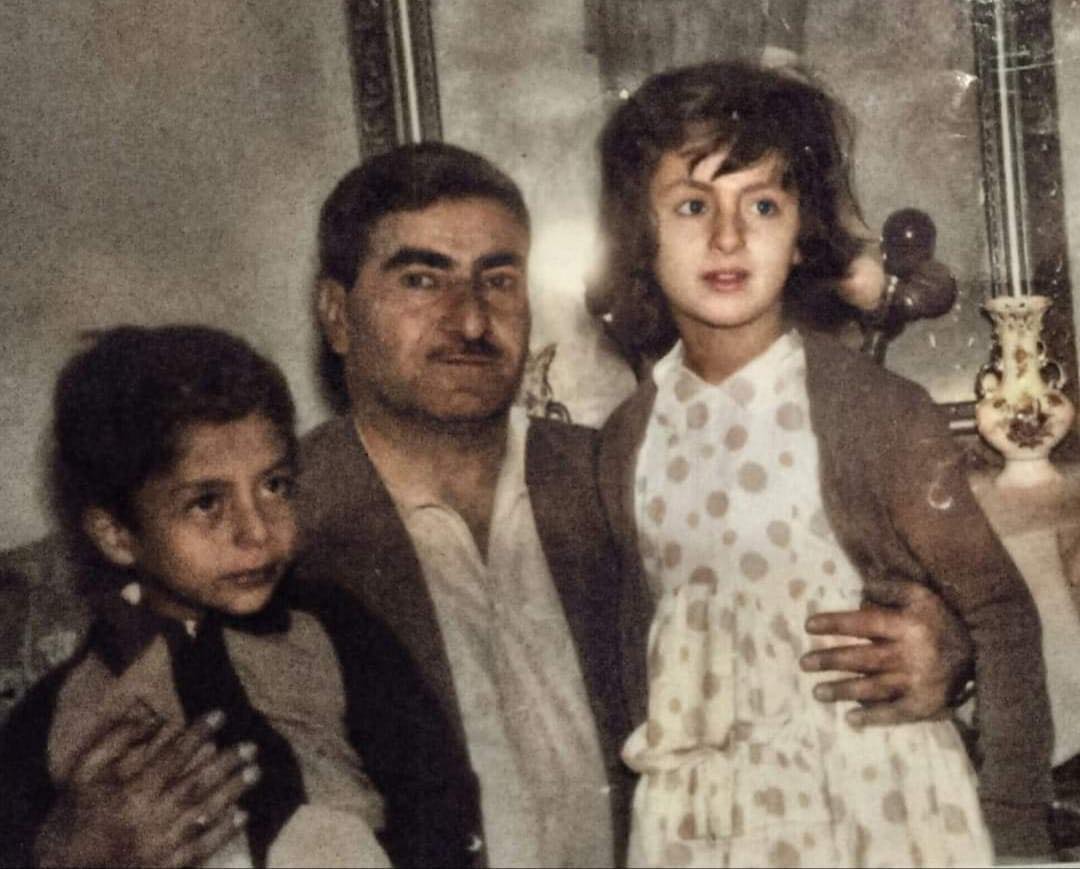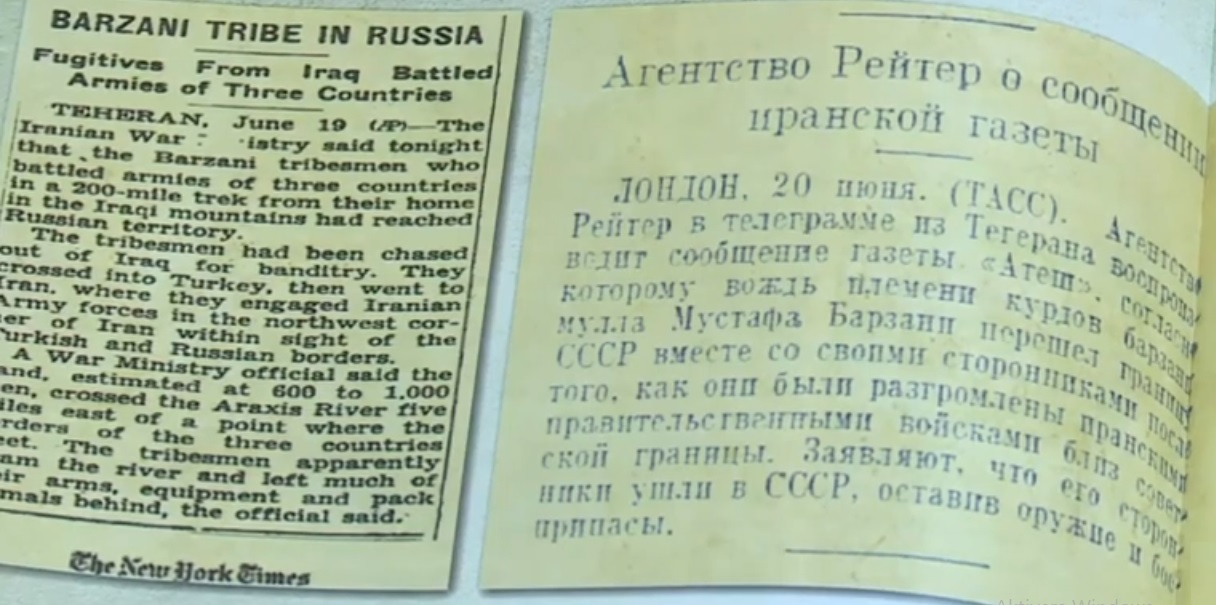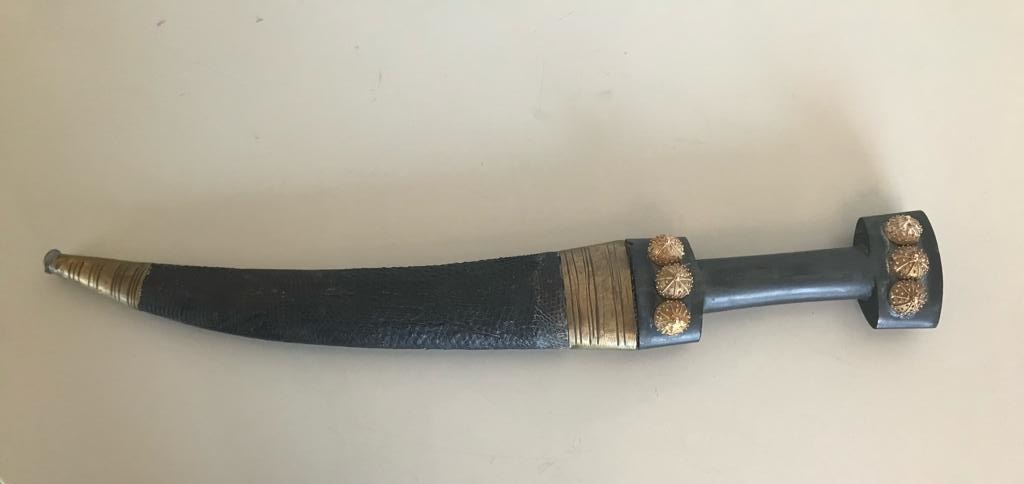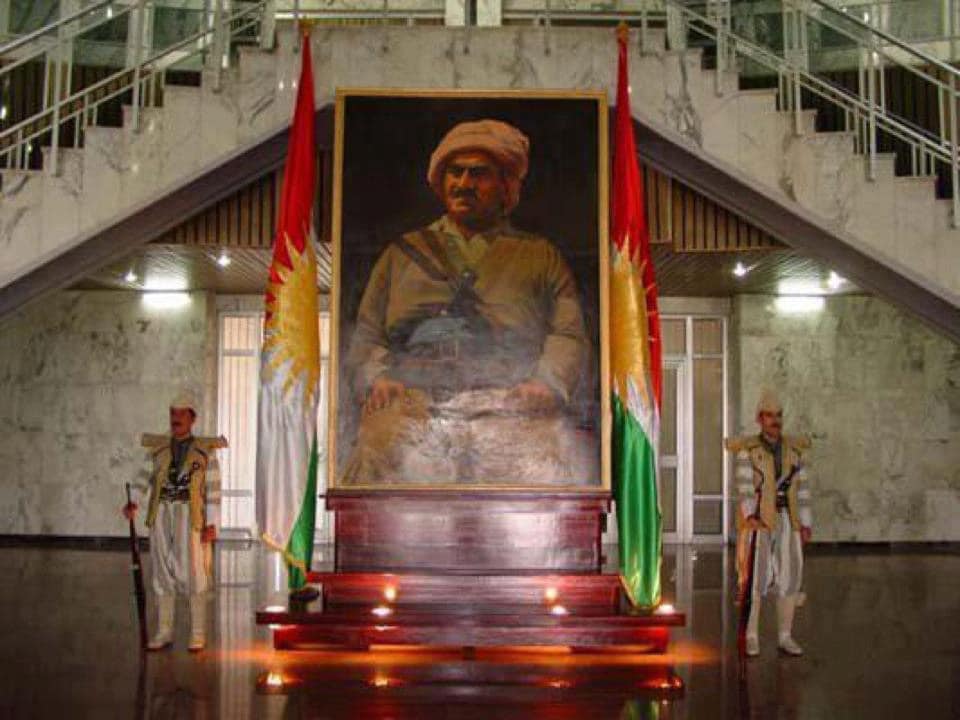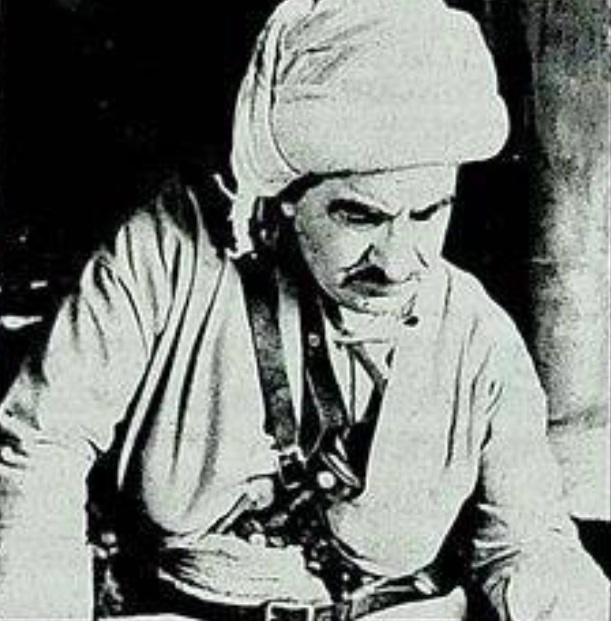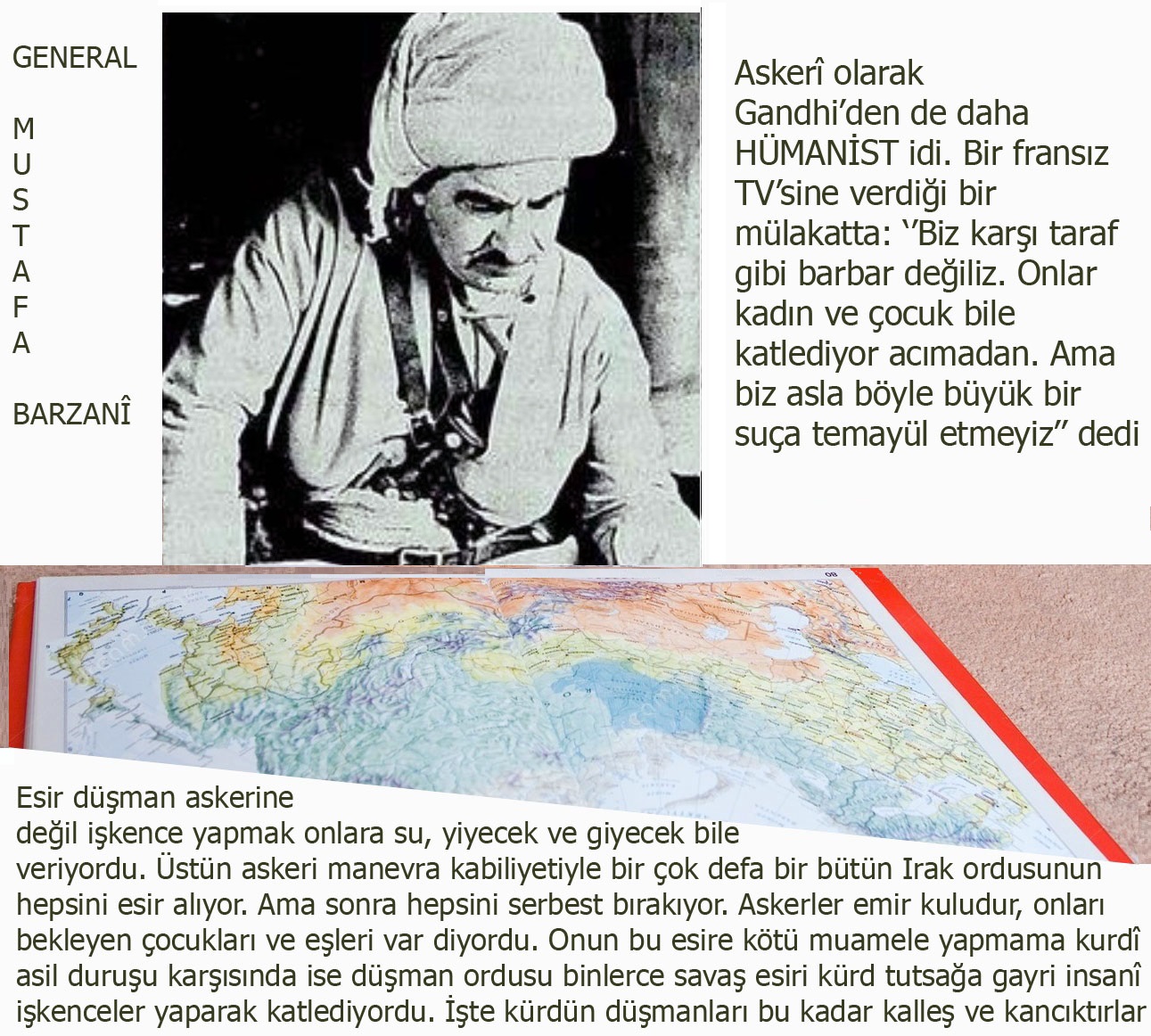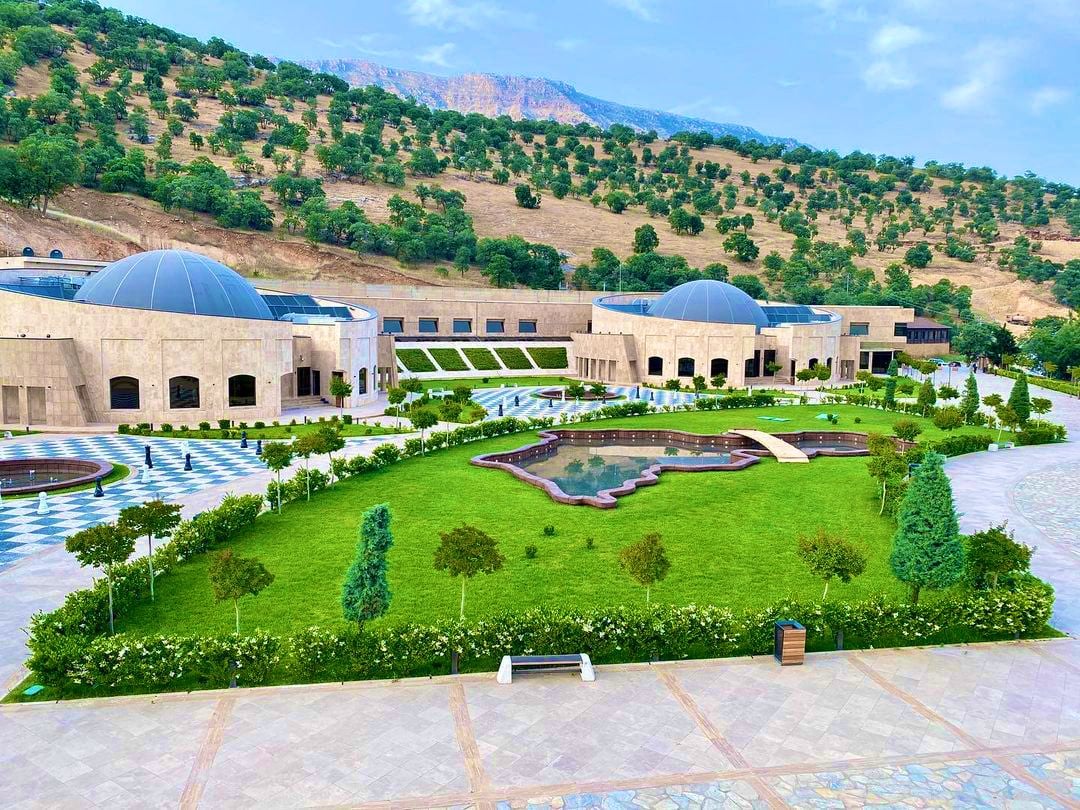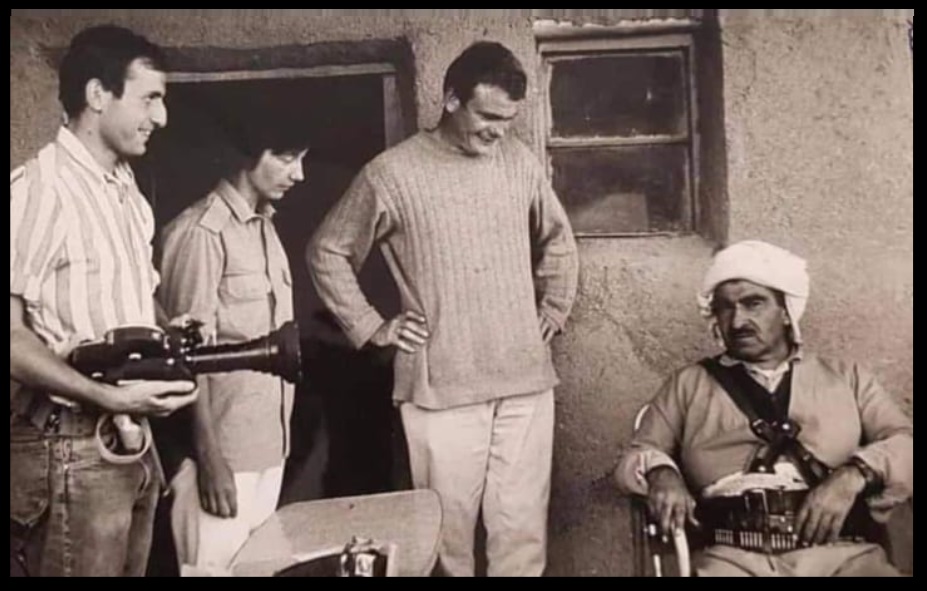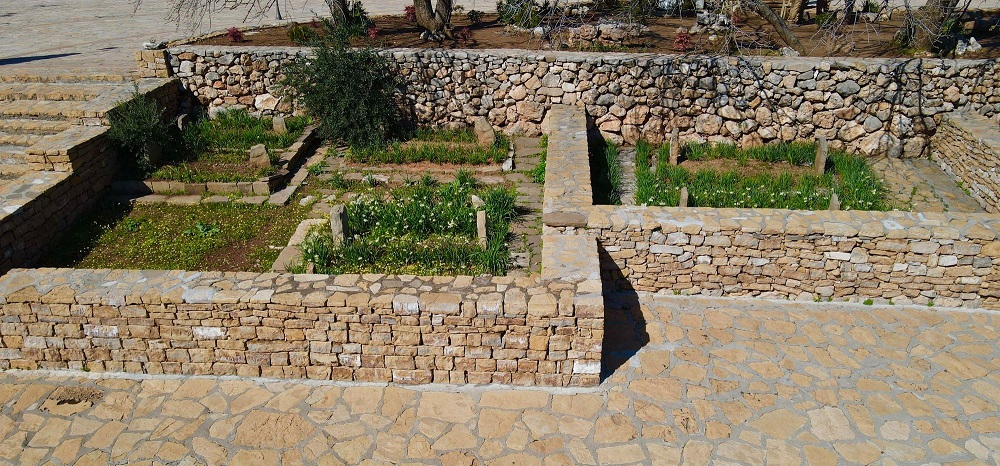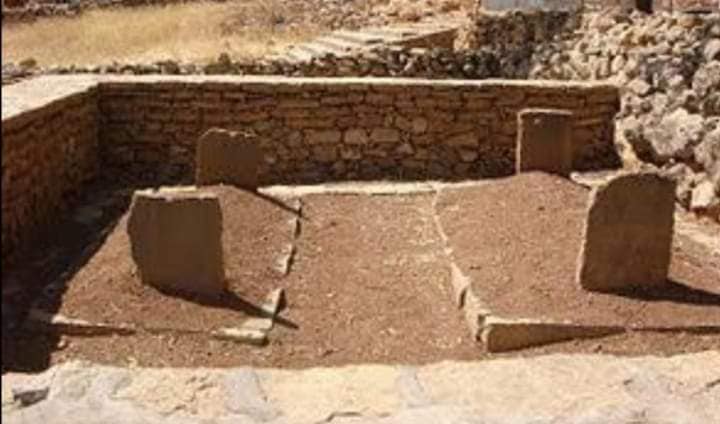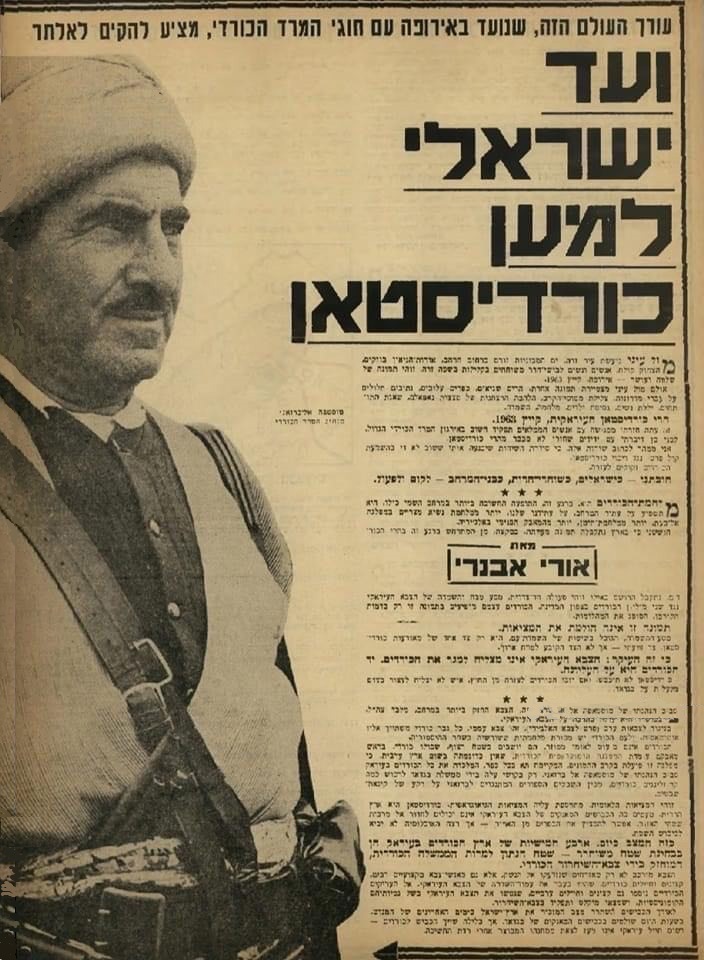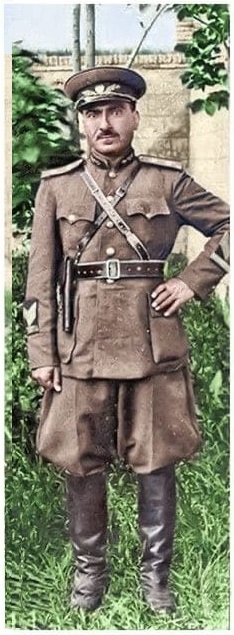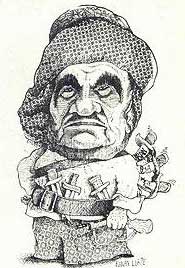The Last Years of Mustafa Barzani
Mustafa Barzanis triumphal posthumous return to Iraqi Kurdistan was the culmination of a journey whose final leg, it might be said, began on a steamy early August afternoon in 1975, at New Yorks John F. Kennedy Airport. His arrival in the United States that day on an Iran Air flight from Tehran was a closely guarded secret. He and his three companions had made the trip in the comfort of the first-class cabin of the Boeing 747 airliner. Now they were to be spared the tedious scrutiny of U.S. immigration and customs officials to which their fellow passengers would have to submit. As they stepped from the ramp to the tarmac, they were met by two men attired in business suits, white shirts, and ties. These two, obviously Americans, led the visitors to black unmarked cars that stood not far from the aircraft, their motors running. The party bundled into the cars and was sped out a side gate onto the expressway toward New York City.
Barzani walked slowly and with a limp, though without apparent fatigue from the trip. The business suit he wore fit him poorly, and his tie was badly knotted. Everything about him said that this was not his usual dress and that these were not his usual surroundings. But even at the age of seventy-two and ailing, he presented a striking figure. It was not his height that distinguished himhe stood no more than five feet six inches tall. But the extraordinary breadth of his shoulders and his big-boned, strongly muscled limbs gave him an aura of great physical power. His large head, covered by short, thinning black hair interspersed with grey, was set squarely upon his torso as though without intermediary of a neck. An eagles beak nose jutted from his face, and bushy black brows were set over eyes that seemed to be lit by a fiercely blazing fire. It was the eyes, in fact, that everyone saw first, that extraordinary piercing light in them that foreign correspondents who over the years had made the hard and perilous trek to Barzanis mountain headquarters in Kurdistan had written about.
His travelling companions were an old friend and two younger men, both in their mid-thirties, one a Kurd and an aide to Barzani, the other an Iranian. After an overnight stop in New York City, the party emplaned the next morning for Minneapolis and there changed to a flight for Rochester, Minnesota, site of the Mayo Clinic. For Barzani was ill, perhaps mortally stricken. Yet he had hope, and this hope had brought him to America.
THE KURDISH REVOLT OF 1974-75
The Kurdish military collapse had come just five months earlier, in March 1975, and with disconcerting suddenness. Exactly a year before that, in March 1974, Barzani had issued a call to arms to the Kurds of Iraq. He had been the target of at least a dozen assassination attemptstwo of them nearly successfulby the Arab regime in Baghdad. He had lost faith in Iraqs willingness to carry out the agreement for Kurdish autonomy that he had signed in March 1970 with Vice President Saddam Husayn at Takrit. So, though he was now past seventy, he decided to fight once again. It looked like a reasonable bet, for Barzani was now the undisputed leader of the Kurds of Iraq and he enjoyed the more or less open backing of the shah of Iran, Mohammed Reza Pahlavi. And, more important still, he felt, he had the secret backing of the United States government, extended on the personal orders of President Richard Nixon and Henry Kissinger, Nixons national security advisor and later secretary of state.
Iraqs Kurds responded unhesitatingly to Barzanis appeal. Kurdish tribesman rallied, Kurdish officers and men deserted the Iraqi army, professionals left their jobs in Baghdad, Kirkuk, and Mosul, and students abandoned their classrooms in high schools and universities everywhere. All joined the ranks of Barzanis Pesh Merga fighters or worked for the cause in whatever other way they could. They brought their families with them. Hundreds of thousands of women, children, and elderly crowded into the Kurdish liberated area and spilled over into Iran. They came in high spirits. Such was the confidence in the seasoned leadership of this old warrior, Mulla Mustafa Barzani, that most were persuaded that in six months at the latest, an independent Kurdish state would be born in the mountains of northeastern Iraq. After all, for over fifteen years, ever since his return in 1958 from exile in the Soviet Union, Barzani had been building from strength to strength, outsmarting his Kurdish rivals, humbling the Iraqi army on the field of battle, by turns bringing down governments in Baghdad and negotiating with them. Why should it be different this time?
But now there was a difference. While professing to make peace with the Kurds, the Arab government in Baghdad prepared for war. It restructured and expanded the Iraqi army and refitted it with massive deliveries of Soviet tanks, artillery, and fighter and bomber aircraft. What Barzani got from his allies couldnt match what the Soviets were sending the Iraqis. From the shah, Barzani got money, plenty of money, and some arms, but never enough arms or ammunition. His forces had only riflessome of them of World War I vintage or earliermachine guns, light mortars, and, toward the end, a few antitank weapons. Israel, a long-time friend, gave mainly training and a few weapons. The Americans gave money directly to Barzanis group, though much less than the Iranians; and they financed some of the arms that were delivered by the Iranians. But for Barzani, the symbolism of the American contribution was more important than its size; for him it guaranteed that the shah would not one day suddenly cut him off.
The result, however, was that Barzanis Pesh Merga, one hundred thousand strong by the beginning of 1975, were always badly outgunned. The Iraqis controlled the skies everywhere and the ground wherever armored vehicles could tread; they bombed and strafed the Kurdsnot just the Pesh Merga but Kurdish villages and farmsat will. On the ground, the Kurds had the advantage of the highland mountain terrain, as well as the advantage of defending their homeland. The fighting was fierce, and both sides suffered heavy casualties. In the big battles, the Iranians occasionally evened the score by moving long-range artillery up next to their border with Iraq to pound the Iraqi attackers. But more often than not, the Kurds had to pull back in the face of the Iraqi armys absolute superiority both in firepower and manpower.
Still, the Kurds were undaunted. Their Pesh Merga had little training in modern warfare but were indescribably tough and courageous. Israeli generals who visited them marvelled at the endurance of the Kurdish soldier, at his uncomplaining acceptance of hardship and his unquestioning obedience to orders. So long as the Pesh Merga had the weapons and the ammunition to do so, they would fight on. Barzani didnt expect to win this war on the battlefield, not with an enemy so superior in weaponry and in numbers. Rather, as in the past, he counted on wearing the Baghdad regime down, bleeding its army and its finances to the point where it would desist and, finally, accede to the Kurdish demand to be left to run their own affairs. He had done it before: his insurrections had brought down, or contributed to bringing down, Iraqi governments all through the 1960s. There seemed no reason to think that he couldnt do it again in the 1970s.
Except that now both Iraq and the world were changing. In the 1960s, Iraqs huge oil resourcessecond only to those of Saudi Arabia, it was saidproduced only puny revenues; oil was dirt cheap on the international market, and the big American, British, and Dutch companies controlled both pricing and production. Governments in Baghdad were as chronically short of money as they were congenitally weak. But in 1968, the Ba`th party seized power in Baghdad. At the time, it seemed like just another coup détat, but before long it became clear this one would be different. By the mid 1970s, the Ba`th government had clamped an iron rule onto Iraq, one unlike any that country of disparate and warring peoples had ever known. In 1972, the government nationalized the Western oil companies, and after the October 1973 Arab-Israeli war, world oil prices shot up to ten times the level of the 1960s. Money cascaded into the Iraqi treasurymoney enough for guns and butter, enough to fight a war with the Kurds and launch the country down the road to unprecedented prosperity and development.
This time Barzani had a different adversary, not just in the clique that ruled in Baghdad and the resources at its disposal, but in Saddam Husayn, its rising new leader, a jet black-haired man in his mid-thirties whose steely gaze and will to power made his youthfulness seem irrelevant; a man unlike anyone Barzani had ever before faced off against. In his long journey, Mullah Mustafa, a man whose formal education amounted at most to a few years of elementary school, had matched wits with the most cunning and devious Arabs that successive governments in Baghdad could offer up against him. Rarely, if ever, had he come out second best. But never before had he been pitted against someone quite so wily, and so utterly ruthless, as this young star of the Ba`th regime.
THE KURDISH COLLAPSE
It seems not to have occurred to Barzani that Saddam Husayn, finding that military victory eluded him, would turn to diplomacy. Nor did he imagine the Iraqi would try to buy off the shah; or that the shah would callously sell Barzani and his people out for what in the end amounted to paltry territorial concessions. The news that the shah and Saddam Husayn had met in Algiers on the margins of a conference for heads of state of the Organization of Petroleum Exporting Countries, and, on March 5, 1975, struck a deal, came to Barzani and his embattled Pesh Merga, and to the rest of the world, like a thunderclap out of a clear blue sky.
It was a surprise even to the shahs own ministers, and also to Richard Helms, the U.S. ambassador to Iran and a former director of the CIA. Helms was at Tehran airport on March 6 when top Iranian officials gathered to welcome the shah back from Algiers. He found the shahs aides as uninformed, and as puzzled, as he was. Helms watched wryly as the monarch amazed them all by issuing instructions the moment he stepped off the aircraft, right there on the tarmac, not even waiting to get to his palace to convene a meeting. He directed that all Iranian military support to the Kurds should cease immediately, along with all financial and other assistance, and that the border between Iran and Iraq should be sealed after a brief delay.
Helms went to call on the shah the next morning and found him characteristically imperious. He did not ask the United States to join him in cutting off assistance to the Kurdsassistance that he himself, three years earlier, had urged President Nixon to extend. He simply told Helms that the cutoff of Iranian assistance to Barzanis Kurdish insurrection would also entail terminating all American assistance. He offered Helms no apology for this sudden action, for he was not a man given to making apologies. He did, however, have an explanation. Barzani, he said, was not putting up much of a fight against the Iraqis; he was just sitting back and asking others to do his fighting for him. Officers of the CIA station at Helmss embassythose who for three years had worked with Barzani and his groupwere embarrassed and upset, indeed angry by this news. But Helms himself didnt need persuading. He regarded the agreement between Iran and Iraq as a positive development, one that would bring stability to the region. And he could understand perfectly well that governments, whether in Baghdad or in Tehran, should object to having their territory taken away by unruly minorities.
When he cabled in his report of his conversation with the shah, Helms expected that his boss, Secretary of State Henry Kissinger, would welcome the normalization of relations between Tehran and Baghdad. He was surprised when Kissinger reacted with irritation. It wasnt a matter of principle or humanitarian concern for the betrayed Kurds that aroused Kissingers ire. As was widely thought within the State Department, it was simply that Kissinger had been looking forward to having the Kurds continue to tie down the Iraqis and prevent Baghdads making trouble for Israel. He was unhappy over the shahs decision, but he wasnt going to try to change it. Henry Kissinger was not about to quarrel with Shah Mohammed Reza Pahlavi, who was, after all, indispensible, the pillar of American policy in the Middle East, the man Washington relied on to maintain stability in the vital Persian Gulf region.
The shah made Barzani wait almost a week, until March 11, before receiving the Kurdish leader and officially notifying him of his fate. Waiting with Barzani was Shafiq Qazzaz, the man who had been (in all but formal title) Barzanis ambassador in Tehran, head of an office comprising some thirty staff. Qazzaz was responsible for the most important and sensitive dealings with the government of Shah Mohammed Reza Pahlavi for the transfer of money and arms to the (in all but name) Kurdish government in neighboring northeastern Iraq; the management of Kurdish hospitals in Iran, in which the war wounded and sick were treated; a Kurdish refugee population that numbered half a million; and also for contacts with Justin, the code name of a top officer of the Central Intelligence Agencys station in the Iranian capital. Qazzaz was a tall, slender, handsome man who in a pleasantly clipped British accent spoke flawless English. Four years earlier, he had completed a doctoral thesis at the American University in Washington in which he had been critical of Barzani. That was before he truly knew the Kurdish leader. Now Qazzaz was as devoted to Barzani as son to father.
To Qazzaz, the long wait seemed an act of cruelty typical of an oriental despot, for March 11, 1975, marked the date five years earlier on which Barzani had concluded his agreement with Saddam Husaynan agreement the shah believed Barzani had promised him he would not conclude. Now, Qazzaz felt, the Iranian was savoring his revenge, twisting his dagger, as it were, in the flesh of the man against whom it was practiced.
Qazzaz accompanied Barzani and Dr. Mahmoud Osman, Barzanis personal physician and top lieutenant, to the shahs palace. The Iranian monarch was brief and to the point. He explained that he had been drawn deeper into war than he had expected when he undertook to aid the Kurds. It was too heavy a burden for him, and he had been obliged to conclude an agreement with Iraq. At that moment, he said, he regarded the agreement with the Ba`th government as temporary. He did not know if the Iraqis would in fact respect it; it would be a test of relations between the two countries. But in the meantime, he was terminating all assistance to the Kurds. The Iranian border would remain open to them for another thirty days, during which time Kurds who wanted to come across would be welcomed; they would, he assured, be given jobs and treated as our own citizens. After that, the border would be sealed.
Osman was outraged. Was the struggle of a people who had sacrificed their blood and treasure to be turned on and off at the pleasure of this one man? He spoke up to protest. When you promised to help us there was nothing said about pulling back . . . The shah cut him off in midsentence. I am telling you my decision. There is nothing to discuss. Barzani listened in silence and departed in silence, too disgusted or too downcast, Qazzaz thought, even to ask the shah to reconsider.
But meeting afterwards with his senior advisors, Mullah Mustafa declared that the armed struggle would continue. He sent his two sons, Idris and Mas`oud, into Iraqi Kurdistan to regroup the Pesh Merga for a return to the hit-and-run guerrilla tactics of the 1960s. He flew back to his headquarters in the village of Nauperdan, just over the border in Iraq. At a gathering there a few days later, under a large tent set on a barren hillside, Barzani described the agreement between the shah and Saddam Husayn as only a temporary setback for the Kurdish cause. He was, he said, 90 percent confident that things would work out for the best. These remarks surprised the military commanders and party officials who had assembled to hear Barzani. After Barzani left, everyone gathered around Qazzaz. What, they asked, gave Barzani cause for such optimism? Qazzaz couldnt answer. Did Barzani know something he hadnt shared with others? Or was he simply trying to keep morale up?
Very soon, however, Barzanis optimism changed to resignation. On March 18, meeting with senior military commanders, he announced he could not go on. Iran, he pointed out, would be closing its border to the Kurds on April 30; Turkey had already closed its border; and the Iraqi army would seal off Kurdistan to the south and west. It was a hopeless situation, but if anyone wanted to take up the battle in his place, Barzani said, he would give that man his full moral support. The offer, however, seemed more pro forma than real. To those who heard him, it was clear that Barzani was saying this is the end, we must stop now. So when he canvassed the room, the commanders agreed that without an open border through which to receive arms and supplies, it would be impossible to continue; all save one,`Ali `Askari, who asked for a few days to sound out his troops and then acknowledged that he too considered resistance futile.
Many of the commanders, battle-hardened men, left this meeting shattered, in tears. When the news spread, there was utter chaos among some of the Pesh Merga units. Some soldiers smashed their weapons, others threw them into gulleys or rivers in despair, still others wept and spoke of suicide. There was an outcry of disillusionment, of shock and bitterness over a past of wasted hopes and dreams and a future that offered only a bleak choice between exile in Iran or return to Iraq on faith of the Ba`th governments offer of an amnesty that all knew would very likelyand that for many thousands did in factmean exile, prison, or death. The shock of the collapse prompted Barzanis personal physician and aide, Dr. Osman, to break with Barzani and denounce him for giving up the armed struggle.
What happened to change Barzanis mind so drastically in the few days between the two meetings? It was noted that just before making his announcement on March 18, Barzani received two telephone calls from Tehran. Had the Iranians threatened him? Had the Americans intervened to discourage him? No one could say for sure, but later some who knew Barzani well concluded that this man, who had led every major Kurdish revolt since the 1940s, was moved less by threats than by sheer egotism. At seventy-two, he knew he no longer had the iron health and the boundless energy to lead another mountain guerrilla campaign. In the war just ended, unlike his earlier ones, he had kept mostly to the comfort of his headquarters. No longer was he able to make the all-night marches for which he was famed, over mountain terrain between one position and another, surveying the enemys dispositions, giving instructions, occasionally even joining in battle. If Mustafa Barzani could no longer lead, how could anyone else? He simply had no confidence, it was said, in the ability of others to do what he had done for so long.
A few Kurds judged him even more severely. It wasnt just that Barzani didnt consider anyone else capable of taking his place; the truth, they felt, was that he didnt want anyone to take his place. He could not bear the thought of another man picking up the reins that he had held exclusively in his own hands for so long. So if Mustafa Barzani could no longer direct the Kurds in their struggle, no one should.
GUEST OF THE SHAH
With the end of the Kurdish revolt, Barzani became the guest of Shah Mohammed Reza Pahlavi, the very man who had betrayed him. He and members of his family were moved to a house in the Tehran compound of Sazman Kashvar Vaamniyat Ettalaat, better known as SAVAK, the shah of Irans secret police agency. The house, spacious and comfortable, lacked nothing material. Still, Barzani found himself living under virtual house arrest, cut off from his followers and from the rest of the world, a prisoner. Frustrated, fretful, and depressed by his failure, he became increasingly concerned about his health. Ever since the early 1970s, he had suffered a pain in his left leg that caused him to limp and restricted his movements. The doctors diagnosed it as spinal stenosis, a pinched nerve in popular parlance, nothing life threatening, just one of the many potential complications of old age.
Now, however, a new and more troubling symptom flared upa pain in his upper right chest. By early July 1975, it became insistent enough for Mullah Mustafas son Idris to ask Dr. Najmaddin Karim, a young Kurdish physician from Kirkuk, to examine his father. As a student at the Mosul University faculty of medicine, Karim was consumed by Kurdish nationalist fervor. The moment he finished his residency, in August 1973, he left to join the Barzanis in the mountains. Together with Dr. Osman, Karim set up a small field hospital at Barzanis headquarters. As Osman became drawn into the political and military direction of the war, Karim took charge of the hospital, attending to hundreds of patients daily, too absorbed in his work to involve himself in headquarters politics or even to follow the wars progress very closely. He gradually took Osmans place as the Barzani familys physician.
A cursory examination told Karim that the old mans heart was sound. The problem, he discovered, was a painful lump near the collarbone. Karim suspected lung cancer. That was what the symptoms indicated, and Barzani smoked heavily. He never smoked store-bought cigarettes; he rolled his own using the pungent tobacco of the Kurdish mountains. He smoked the equivalent of two or more packs a day and had done so for almost sixty years. A diagnosis, however, could not be made without taking x-rays. Barzani stoutly refused, and he refused just as insistently to see the Iranian specialists that the shah wanted to send him. I dont want to have any x-rays here, he told Karim. If I start treatment here, theyll never let me go, theyll tell me to finish my treatment here.
He wanted to get to the United States, not just because he expected to get better medical care there but to plead the Kurdish case, in person, to Henry Kissinger, who only two weeks before the shahs agreement with Saddam Husayn had written to Barzani: I want you to know of our admiration for you and your people and for the valiant effort you are making. Barzani counted on having influential allies in the United States, in particular Senator Henry Scoop Jackson, the powerful conservative Democrat from the state of Washington, and George Meany, head of the AFL-CIO, both of whom had been effusive in their support for Kurdish rights. He also expected to find a sympathetic hearing among the American public. Illness served as a means to break free of his Iranian prison and get to America.
Neither the shah nor Kissinger wanted Barzani parading about the United States exposing the embarrassing and still secret story of Americas aid to the Kurds of Iraq and its abrupt abandonment of them. But Mullah Mustafa did in fact have powerful friends in Jackson and Meany, friends who could bring out his story if they thought he was unjustly denied medical treatment in the United States. Reluctantly, the shah and Kissinger decided the safest course would be to let Barzani come to the United States for diagnosis and treatment but to keep his movements and contacts carefully circumscribed. The CIA would make all arrangementsand pay all billswhile CIA and SAVAK officers would at all times escort Barzani and the members of his party. And so it was that Barzani was finally allowed to travel to the United States, arriving on that steamy afternoon in August 1975.
TREATMENT IN THE UNITED STATES
Mohammed Dosky, a Kurd from a prominent family in northern Iraq, first visited Barzani at the Mayo Clinic in September 1975. Dosky, a stocky, pokerfaced man in his mid-forties who looked a decade older, had admired Mullah Mustafa Barzani since childhood but had never been active in the Kurdish cause. He had been an officer of the Iraqi diplomatic service until 1971, when the Ba`th regime in Iraq issued a regulation requiring those married to foreign womenwomen who were neither Arab nor Muslimto divorce their wives or resign from government service. At that point, Dosky decided to leave both the Iraqi diplomatic service and the country itself. With his American wife, whom he had married while a visiting student in the early 1950s, he moved to the United States.
Before going, he offered to put his diplomatic experience to good use for the Kurdish cause. He sent out feelers and met Barzani, who appreciated his skills. Few Kurds at that time lived in the United States, and Barzanis Kurdistan Democratic Party had no representation in Washington, so Barzani asked Dosky to make contacts for him there and report back. Dosky arrived in Washington in 1972, and made the rounds of Congress and the State Department. He developed contact with Senator Jackson, and with Jacksons young assistant, Richard Perle; and with George Meany, and Meanys son-in-law, Ernest Lee, who headed the AFL-CIOs foreign department.
But Dosky was a latecomer to the Barzani entourage, and as such did not enjoy their full trust. He was not informed when Mullah Mustafas son Idris and Dr. Osman traveled secretly to Washington for meetings at the CIA headquarters that same year. Nor did he have a part in the subsequent relationship between the Barzanis and the CIA, though eventually he got wind of it. It wasnt until after Barzani came to the United States in August 1975 that Dosky was accepted, albeit still with some reservations, into Barzanis inner circle.
When Dosky visited Barzani at the Mayo Clinic in September 1975, he realized that for all practical purposes, the Kurdish leader had become a ward of the CIA and of SAVAK. Doskys subsequent trip to the clinic in early October had a cloak-and-dagger quality. He arrived in Rochester in the afternoon and registered under a false name at the hotel where Barzani was staying, adjacent to the clinic. Dosky then called the room number Shafiq Qazzaz had given him. Forty-five minutes later, Qazzaz and Mas`oud Barzani, who had by then joined his father in Rochester, knocked at Doskys door. They explained the plan. At 8:30 p.m., the two of them would take the CIA and SAVAK officers to dinner. They would lay on the Middle Eastern hospitality, buy drinks and order several courses, and so keep their guests at the dinner table for at least two hours, giving Mullah Mustafa ample time to confer with Dosky.
Dosky found Barzani sitting in bed, looking well enough, but his hair fallen out from radiation and chemotherapy. Barzani listened intently as Dosky read a letter from Senator Jackson and conveyed an oral message from George Meany. The message from Meany interested Barzani in particular, for Meany proposed to launch a publicity campaign in favor of the Kurds. After hearing the two messages, Barzani startled Dosky.
Do you think the AFL-CIO could abduct me from here? Barzani pointed out that he had been at the clinic since August. He had completed radiation therapy, and the chemotherapy he was now receiving could be administered anywhere. He had asked repeatedly to be allowed to go to Washington, but his CIA minder kept finding excuses. It was always next week, or tomorrow, or the day after tomorrow. Perhaps, Barzani suggested, Dosky could hire a small plane, and while Mas`oud and Shafiq kept the CIA and SAVAK men at dinner he could slip out of the hotel with Dosky and fly to Washington.
Dosky didnt tell Barzani how ridiculous he found the idea. This was, after all, the United States, not some Middle Eastern police state. You didnt hire a plane; you just got on a commercial flight. But Dosky didnt want to argue with Barzani, so he said only that he was sure it could be managed one way or another. Barzani instructed Dosky to work up an escape plan and come back to see him the next evening.
When Dosky returned, he was surprised to find himself greeted coldly. Did you talk to anyone since you saw me yesterday? Barzani shot at him. Only Shafiq and Mas`oud, Dosky answered. Why did Barzani ask? Because this afternoon the CIA man came to me and said they have approval for me to go to Washington. I thought maybe you talked to them. Definitely not, Dosky assured. Perhaps there was a listening device in the room, Dosky suggested. Should he check? Dont bother, Barzani replied. If we find it, theyll just put another one somewhere else.
Barzani instructed Dosky to return to Washington and arrange for him to see not only Jackson and Meany but Senator William Proxmire of Wisconsin and others. Dosky flew back to Washington the next day, then waited . . . and waited. Two weeks passed and he had heard nothing. At the beginning of the third week, Dosky called the hotel in Rochester. The party, he was told, had long since departed, leaving no forwarding address. Dosky was near panic. Had the CIA kidnapped them, had it sent Barzani back to Iran, or taken him to some secret place of captivity?
At the beginning of the fourth week, Qazzaz called. He explained that the CIA had taken Barzani and the members of his party for a vacation. They had spent a week at Lake Tahoe, in California, and toured elsewhere in the West. Three days earlier they had arrived in Washington, where the CIA lodged them in a house in the Virginia suburbs with a telephone that didnt work. CIA minders had taken Barzani and his party on a sightseeing tour of Washington. The CIA drove them by the White House and informed them this is the White House but refused to stop when Barzani asked them to. Same story at the Capitol. Qazzaz had only managed to get away on the pretext of seeing his daughter by a marriage, then ended, to an American woman living in the Washington area.
Later on the day of the call, Dosky met Qazzaz in the lobby of the Marriott Hotel in Rosslyn, just across from Georgetown. The CIA, Qazzaz reported, insisted that Mullah Mustafa return to Iran. Barzani was resisting, saying that he didnt want to leave until cured, that he couldnt get proper treatment in Iran, that if he had to leave the United States, he wanted to go to Switzerland or Sweden or someplace where he could be assured of good medical care. The answer to all these objections, Qazzaz said, was a blunt the shah wants you to go back.
When Barzani resisted returning to Iran, the answer to his objections was a blunt the shah wants you to go back.
Barzani finally gave in, fearing, Dosky thought, that if he continued to refuse, harm might come to his followers or his family living in Iran. He was to be granted one small concession before departing. Barzani had repeatedly asked to meet with Henry Kissinger, sure that if only he could lay the case before Kissinger, the secretary of state would set things right with the Kurds. The old Kurdish warrior had no idea how badly he had misjudged the man who had written to him so warmly in earlier times. Kissinger would later (it was said, though he denied it) dismiss the entire episode of U.S. aid to the Kurds with the contemptuous remark that covert action should not be confused with missionary work. He had no intention now to see Barzani. Evidently, however, he thought it imprudent to snub Barzani entirely. So he instructed Joseph Sisco, his undersecretary for political affairs: Hear Barzani out and let him blow off steam, nothing more.
For Sisco, it was a distasteful mission. Sisco had been assistant secretary for Near East and South Asian affairs in 1972, when Kissinger had first established the clandestine aid channel to the Kurds, but Sisco hadnt known anything about it. Even after he became undersecretary in 1974, Sisco was not made privy to the handling of the program or any of its details, all of which remained strictly in Kissingers hands. Now, however, Kissinger asked him to face the man who felt himself betrayed by the termination of that program.
Sisco was driven in darkness to the CIA safe house where Barzani and his party were living. Barzani struck him as not looking well, but he spoke vigorously and expressed dissatisfaction with the way he had been treated. He went over the history of his dealings with the U.S. government and spoke of the trust he had placed in the Americans. He had never trusted the shah but when the Americans backed him, he said, he was confident of not being abandoned. He would never have gone to war with the Baghdad government had he had any doubt about the firmness of the U.S. commitment.
Sisco explained that the United States had come in to help the Kurds at the request of the shah; and now, at the request of the shah it was pulling out. Bound by his instructions, Sisco could not hold out any hope that the United States might reconsider. He could only say that he would report to his superiors what Barzani had told him.
Barzanis visit to the United States came to an end in late October 1975. On the morning of his flight back to Iran, the CIA minders delivered a six-month supply of medication to him. Dosky and Qazzaz both thought it a cynical gesture. The agency, they were sure, had been told by its physicians that Barzani couldnt last more than half a year. They didnt expect to see him again, and the medicine was their way of saying a guilty goodbye.
If that was in fact their intention, they were wrong, but hardly more so than the doctors at the Mayo Clinic. The diagnosis at Mayo, after x-rays and blood tests in August, was aggressive cancer. The cancer had metastasized from the lung into the upper chest and had become inoperable. It will spread rapidly, the attending physician at Mayo told Shafiq Qazzaz. I would say he has perhaps eight months to a year to live. A less hardy man might not have lived even that long. But Mullah Mustafa Barzanis iron constitution
carried him for three and a half more years.
AGAIN PRISONER OF THE SHAH
Back in Tehran, Barzani was once again a prisoner of the shah, cut off from the people he had earlier led. Many of them had voluntarily gone back to Iraq, but several hundred thousand remained in Iran and their reception in no way resembled the one the shah had promised. Most were in heavily guarded camps, without jobs, living on near starvation rations and continually threatened with forceable return to Iraq or dispersion to remote areas of Iran. Having followed Barzani blindly, many now cursed him, blaming him for the disaster that had befallen them.
It was a depressing time for Barzani. His brother, Sheikh Babo, a friend and companion since childhood, died in February 1976. Qazzaz and Karim were with Barzani when the news came. Neither had ever before seen him in tears. Now they watched as he wept with abandon, like a wounded animal. Babos death seemed to unleash all the sorrow that was pent up in Mullah Mustafa, and his illness made the time more depressing still. He was ambulatory, and his cancer was kept in check by the chemotherapy, but the chemotherapy itself made him sick. Dr. Karim, still the familys personal physician, administered the treatment at a hospital in Tehran and stayed with Barzani afterwards through the vomiting and the pain, giving him intravenous fluids and medication to make him more comfortable.
Barzani lamented his return to Iran. It had been a great mistake, he told Karim. He wanted to go back to America. If only he could get there once more, he was sure he could persuade the Americans to resume their aid to the Kurds and oblige the shah to reverse course. The Iranians ignored Barzanis request to return to the United States, as did the American embassy in Tehran. So Dosky was put to work in Washington.
After Barzani had left Washington, Dosky avoided on-the-record interviews for fear of causing the Barzanis trouble back in Tehran, but he did quietly spread word about Barzanis illness and how he had been treated by the CIA during his U.S. stay. In November 1975, Dosky went to see Daniel Schorr, a CBS television newsman, and gave him the story. Schorr broadcast it on the CBS Evening News, and on February 16, 1976, The Village Voice published excerpts from a secret congressional document that confirmed both the Nixon administrations covert aid to the Kurds and its shamefully abrupt cutoff.
Early in May 1976, Dosky called on Sidney Sober, a deputy assistant secretary of state for the Middle East. Sober initially brushed aside Doskys plea for a U.S. visa for Barzani and for the State Departments intervention with the shahs government to allow Barzani to leave Iran.
We cant interfere in Irans internal affairs, Sober declared. The shah doesnt allow such things.
Dosky decided he would have to get tough. Last year I told CBS certain things about how the U.S. has treated Barzani, Dosky said, but there is a lot more to tell. Now Barzani is a dying man. If you dont allow him to come back for medical treatment, Im going to tell the whole story.
Dosky was bluffing. Interviewed more than a decade later, he admitted that he had not known much more than he had already told Schorr; and in any case, he wasnt at all sure Barzani would have authorized him to speak out. But the bluff worked.
A worried Sober replied, Wait, let me look into this and Ill get back to you. Two days later, Sober told Dosky that the State Department would authorize a visa for Barzani. All he had to do was send his passport to the U.S. embassy in Tehran. But how was Barzani to get the Iranians to give him a passport? Dosky asked. Thats not our affair, Sober replied. Dosky blew up.
Politically you have murdered Barzani. Do you intend to do it physically too? The man is sick, he needs to come here for treatment. To deny him this treatment means killing him. There is no reason for this. Your relations with Iran are very good. Barzani is not going to do any harm to you or to Iran if he is allowed to come here for treatment.
Dosky could see that he had made an impression. Ill call you back in a day or two, Sober said. Forty-eight hours later, Dosky was back at the State Department. All right, Sober said, we have been informed that the Iranians will let General Barzani go. But, Sober added, there were conditions for Barzanis stay in the United States. This time he would have to come at his own expense; and he would have to commit himself not to meet with the media or make political statements. Dosky agreed but said he had conditions of his own: this time Barzani would not be controlled by the CIA. He would be free to go where he liked and to meet with anyone so long as he did not have contact with the press.
THE UNITED STATES, REVISITED
In June 1976, Mullah Mustafa Barzani deplaned at John F. Kennedy Airport for the second time. Dosky, who was at the terminal to meet Barzani, was disturbed to find a tall American whom he quickly identified as a CIA officer waiting for the Kurdish leader. The man protested that he had come only to welcome Barzani because he had known him earlier. Nonetheless, the agency did at first continue to track Barzani and, despite Sobers insistence, to pay for him. When Barzani went to the Mayo Clinic for a checkup and treatment, a CIA officer was there, too. On moving to Washington, the agency rented him a luxury suite at the Shoreham Hotel, the same suite that Spiro Agnew had kept in the days, half a decade earlier, of his vice presidency. In early August, the agency hosted a lavish dinner there for Barzani with senior people from its operations directorate and from the State Department.
As the year before, the CIA and SAVAK again tried to persuade Barzani to return to Iran. This time, however, he refused. He was still persuaded that somehow he could work a turnaround in American opinion, and he knew that in Iran he could do nothing for the Kurds and could not get the medical attention he needed. When Barzani refused to go back to Iran, the CIA cut off his funding.
Dosky found him a house on the outskirts of Georgetown, where he stayed for approximately a year before moving across the Potomac to McLean. Barzani returned periodically to Mayo, and in between visits there was given radiology and chemotheraphy treatments at Georgetown University Hospital and at Sibley Hospital. The cancer was kept in check and he was able to lead a more or less normal life. He met with Senators Jackson and Proxmire, with George Meany, Congressman Stephen Solarz of New York, and others. Still, he chafed under the State Departments ban on public appearances, the more so as journalists insistently pressed him for interviews.
In the spring of 1977, Roberta Cohen, executive director of the International League for Human Rights (at the time, the only significant American human rights group), invited Barzani to her New York office. Outraged over the Department of States violation of Barzanis right to free speech, Cohen reasoned that the federal government could muzzle an alien but it couldnt tell her, an American citizen, not to speak to journalists. Cohen brought the old Kurdish warrior together with reporters in the same room, invited the reporters to ask her questions, which she in turn asked Barzani, to which he then repliedin the reporters presenceto Cohen. This charade brought protests from the State Department, but by then Kissinger was no longer secretary of state and a Democratic administration that proclaimed its dedication to human rights had taken office. Barzani did not have to worry about being deported.
Barzanis lobbying efforts got Congress to let some one thousand Iraqi Kurds admitted to the United States as refugees, but that was all. He could not bring about the reversal of American policy he had been so sure he could accomplish, or even put the Kurdish question on the U.S. foreign policy agenda. The Kurds continued to be ignored, and, increasingly, so was Barzani. Morris Draper, the State Departments office director for Northern Arab affairs, for a time maintained contact with the Kurdish leader. Barzani was flattered by Drapers attentions. But in 1978, Draper moved up to become deputy assistant secretary and turned his liaison with Barzani over to Mary Ann Casey. Casey was a more junior officer, but it was less her position that bothered Barzani than the fact that she was a woman, which to him meant that the U.S. government considered him to be no longer of any importance whatsoever. With Draper, he had always been restrained in his expressions of disappointment over his abandonment by the United States in 1975. He continued at first to be so with Casey, but one day late in 1978, Barzani exploded. He poured out to the young woman all his rancor over what he regarded as an unpardonable betrayal.
To Dosky, Barzani frequently lamented the trust he had placed in the United States. If I had known that America is such a mixture of people, who nobody knows where they came from, I never would have done it, he remarked on one occasion. On another, he blurted out: How was I to know that the CIA isnt a part of this nation, that it is disliked so much by the Congress and the people of America?
From early 1977 until his death in March 1979, Barzani was haunted by an overwhelming sense of failure. Frequently, he blamed others but at times he took responsibility upon himself. Once, in the summer of 1977, while Barzani was lunching at a Middle Eastern restaurant in the Washington, D.C. area with Qazzaz, Dosky, Karim, and Jamal Alamdar (his former representative in London), a man approached their table and addressed them in Arabic. You are Kurds, arent you? he asked. I hear you speaking Kurdish. The man identified himself as an Assyrian, a sect that had suffered almost as much as the Kurds as the result of the collapse of Barzanis rebellion. Not recognizing Barzani, he declared: So tell me, how is it that this man Barzani who is supposed to be so wise, how is it that he could have done such a stupid thing as to put his trust in the shah of Iran? Barzani sat silently while others told the man to mind his own business. But as they left the restaurant Alamdar noticed that Barzani was very quiet. Seeking to comfort him, Alamdar said he hoped the Assyrians remarks had not upset him. In a voice barely audible, Barzani replied, No, everything he said is quite true. I was very stupid. I have been a failure.
American friends also sought to comfort Barzani. They reminded him that he had accomplished great things in his life. They assured him that he would be remembered in history as a great man. But when they tried to persuade him to dictate his memoirs, he steadfastly refused. If I had been a success, I would, he replied on one occasion. But my life has been a failure. There is nothing worth telling.
Barzanis cancer remained essentially in check until the very end of 1978, when it began to spread rapidly. His condition worsened and he became bedridden and was flown back to Mayo early in January 1979. When Barzani left, the attending physician remarked sadly to Dosky, I dont think I will see him again.
Barzani went back to his house in McLean. Early in February, when he realized there was nothing more the doctors could do for him, Barzani announced that he wanted to return home, to die on Kurdish soil, even if only in Iranian Kurdistan. He charged Dosky with making arrangements for a flight to Tehran but the plan immediately ran into trouble. When the airlines learned that Barzani would require an oxygen cylinder during the flight, they demanded medical certification that he was well enough to survive the journey. Dosky explored the possibility of a private charter, but found the price prohibitive.
Barzani was still at the McLean house when, at the beginning of the last week in February, his right arm swelled frighteningly and painfully, like a balloon. Idris, Dosky, and Mohsin Dizayee (a long-time Barzani loyalist) urged him to go to a hospital but Barzani dismissed the advice. There is nothing they can do for me, he said. But a doctor was called in, and on his advice that the arm could be drained to relieve the swelling, Barzani went to the Georgetown University Hospital. Dosky and Barzanis young grandson, Farhad Barzani, stayed there with him every day from 7 a.m. to 7 p.m., while Idris and Mohsin Dizayee took the night shift. By the beginning of March, Barzanis condition had improved to the point where his physicians promised to issue certification for his travel to Iran.
When Dosky and Farhad arrived at the hospital on the morning of March 3, 1979, they found Barzani much improved. He was alert and talking and no longer in pain. The day passed uneventfully. At about five that afternoon Barzani asked to be moved from his bed to an armchair in his room. Neither Dosky nor Farhad saw anything unusual in this; it had been done many times before. Dosky pulled the armchair near to the bed and Farhad, a stocky, powerfully built young man, placed one arm behind his grandfathers back and another under his legs, the procedure he had earlier used. But as Farhad began to lift his grandfather he was startled to see him turn a deep red. He immediately set the old man back down on the bed. Barzani rested a moment and then commanded his grandson to try again. Farhad did not feel right about doing it, but he obeyed, having been brought up never to question his grandfathers order.
As Farhad lifted him for the second time, Barzani turned crimson. His head jerked upwards and then slumped to one side. Dosky hurriedly called a nurse and within minutes a doctor came. He confirmed that Mullah Mustafa Barzani was dead.
Farhad seized the receiver from the telephone at his grandfathers bedside and began frantically dialing, calling his uncle Idris at the McLean house. He had known the number well, but now he could not remember it. He put the receiver down and tried to collect himself. Again he dialed, but only a few digits would come to him. Finally, Dosky spoke out the numbers while Farhad completed the call.
The body was taken to a funeral home in Washington, and the next day hundreds of Kurds crowded the waiting room to pay last respects to their fallen leader. On March 5, 1979, the coffin bearing Barzanis remains was placed in the aisle of the first-class cabin of an Iran Air Boeing 747. Idris Barzani, Farhad Barzani, Mohsin Dizayee, and Mohammed Dosky sat aside it throughout the long trip to Iran.
In Tehran the next morning, the casket and the members of the party transferred to Iranian army helicopters to be flown to a small town west of Mahabad in Iranian Kurdistan, adjoining the Iraqi border. There an enormous crowd, larger than any Farhad had ever seen, waited to welcome Mustafa Barzani home one last time. Men wept and fired their weapons in the air, and women wailed. The grief of an unacknowledged nation poured out across the wintry Kurdish mountains.
In death his mistakes were forgiven. Mustafa Barzani was no longer a failure but once again the hero that he had been for so much of his life, the greatest the Kurdish people had ever known. The date was March 6, 1979, four years to the day that Shah Mohammed Reza Pahlavi stepped off his plane from Algiers and issued the orders that brought Barzani and his people to ruin and exile; and only a few weeks after the same Mohammed Reza Pahlavi was driven from his throne, hated and reviled by his people.
Kissingers Letter to Barzani
The personal files of the late Mohammed Dosky, the Kurdistan Democratic Party representative in Washington during the 1970s, contain the following paperless paper, a communication not on letterhead and with only the barest of identification (the salutation includes no name, the sender provides only his initials). We believe it to be a genuine letter from Secretary of State Henry Kissinger to Mustafa Barzani, transmitted to him through CIA channels.
February 22, 1975
My Dear General:
I was most pleased to receive your message of January 22, 1975. I want you to know of our admiration for you and your people and for the valiant effort you are making. The difficulties you have faced are formidable. I very much appreciated reading your assessment of the military and political situation. You can be assured that your messages receive the most serious attention at the highest level of the United States Government because of the importance we attach to them.
If you would like to send a trusted emissary to Washington to give the U.S. Government further information about the situation, we would be honored and pleased to receive him. I am convinced that secrecy has been of paramount importance in maintaining our ability to do what we have done; it is only for this reason plus our concern for your personal safety that I hesitate to suggest a personal meeting here with you. I look forward to hearing from you.
Please accept my sincerest good wishes and high esteem. |
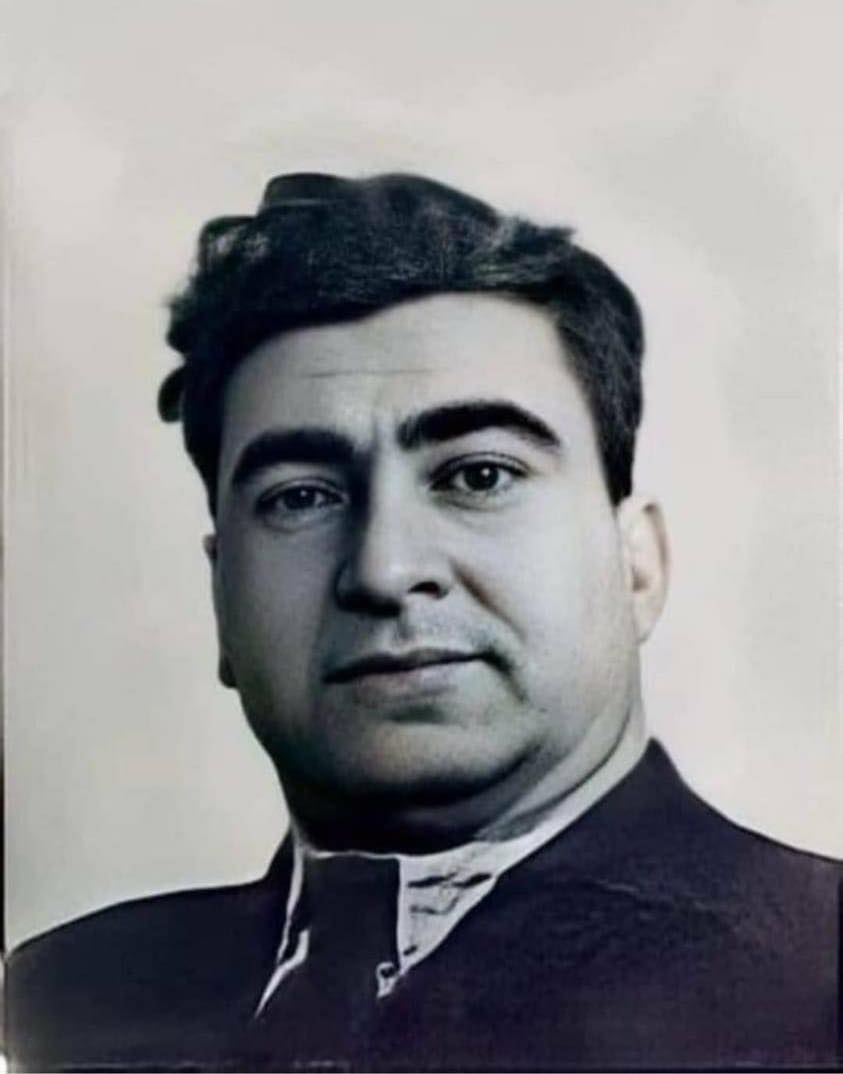

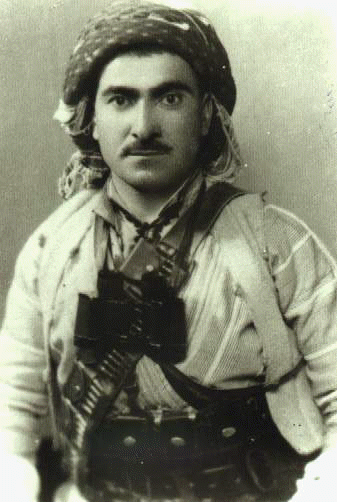
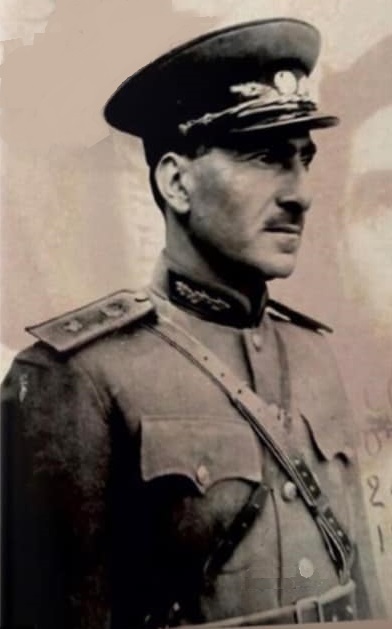 ,
,